#claire beauchamp
Link
Chapters: 9 ““Desperate Measures”
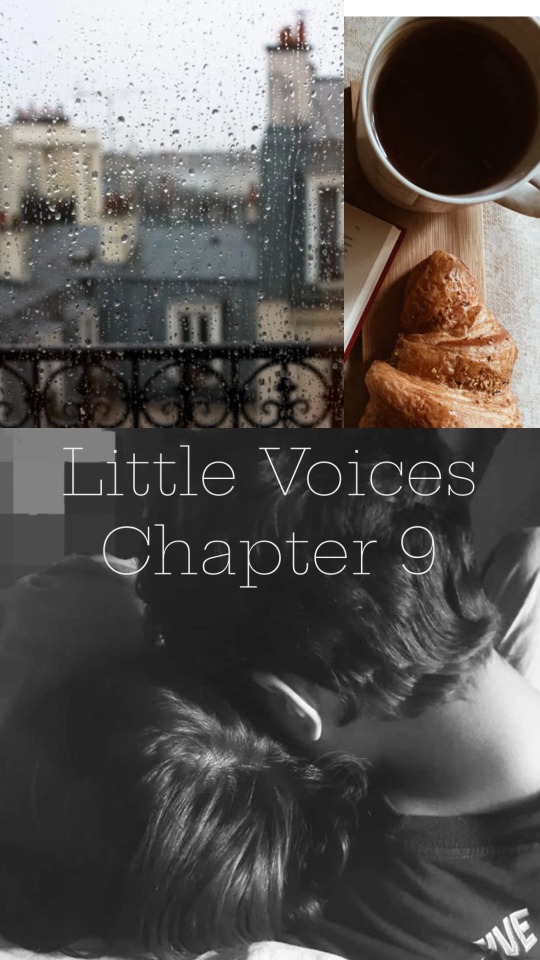
32 notes
·
View notes
Text
Why the World Needs Black Jack Randall: Queer Representation at Its Worst and Best
On March 29 my amazing mutual and fellow Evil Redcoat Pipeline traveler @meerawrites tagged me in a reblog of this video essay from @rowanellis about media literacy and queer villains that mentions both Lestat de Lioncourt from Interview with the Vampire and Black Jack Randall from Outlander. Double bisexual representation from an openly ace creator? Be still my heart!
I’d seen a few of Rowan’s other videos on YouTube—not ever having looked for her on Tumblr before Meera sent me that video—and often enjoyed both the content and the nuance. Certainly true for many aspects of this one as well. I want to make it very clear before going into detail here that I ardently support Rowan as a creator and appreciate that advocacy for diverse queer representation tremendously. I’m tagging her blog here primarily to promote her work and to encourage folks to explore for themselves. Her video essays are excellent in general and this one certainly has its fair share of wonderful content just the same.
I love the analysis here of why queer villains often get embraced as folk heroes by the LGBTQIA+ community, and many of the specific commentaries on beloved characters from iconic films and shows I grew up on like The Rocky Horror Picture Show and The Lion King. Of course, I’m no expert on any of those canons despite many viewings. I don’t consider myself an expert on Interview with the Vampire by any means either, but I’ve read all the books and seen the film and the available season of the new television adaptation. I found a lot of the commentary here insightful and resonant as a more casual consumer of media in that universe. I fully expect that folks who truly do have that depth of expertise would have much to say about the specifics of Rowan’s analysis of Lestat.
If y’all are on my blog, you know why I’m here and you know where my expertise lies. I am here to sustain the collective derangement of the few and the proud who take a deeper interest in Black Jack. Who see him for the complex and complicated person he is rather than writing him off as a Complete Monster or hand waving the things he does that truly are monstrous. And oftentimes who take that deeper look at him from the informed perspective of lived experience with sexual abuse. Many of the folks I’ve met who find Black Jack uniquely resonant and compelling do so from the firsthand perspective of submissiveness and masochism—of finding him alluring because of what he could do for them.
Well then. You could fix him. You could make him worse. I could rail him.
I’m going to out myself in no uncertain terms here because I need to make my authorial standpoint painstakingly clear. Hi, my name is Malicious Compliance. In addition to being quite openly bisexual in every possible area of my life, I am Dominant and sadistic. Are those the only things I enjoy sexually? Not at all. Although I’m not switchy in the slightest when it comes to D/s and S&M activities, I absolutely enjoy sex that does not involve BDSM elements as well. I’ve also had intensely kinky sexual relationships that involved no physical practice of sadism whatsoever. This will come back later—just like Black Jack does at Versailles in S2E05 “Untimely Resurrection” after supposedly being dead from a cattle stampede at Wentworth Prison. Awesome, right? Like me, our favorite randy Redcoat is tough to kill.
Given all this and my general level of immersion in all forms of Outlander canon, once I finally could make the time to give Rowan’s video essay my full attention (more on that below) I found myself going from pumping my fist to shaking my head. I knew I’d have to say something in response. That I would need to address the Republic and set the record accurate if certainly not straight.
Initially I thought about doing a brief reblog commentary noting that although the analysis in the video gets several things quite twisted about Randall, these are understandable omissions considering Rowan does not position herself as having intensive expertise on Outlander canon. But then I started thinking about Rowan’s stated purpose in making the video. The sorts of deeper analysis and nuances that, as Rowan herself points out in her own ways, often get missed with intent in considering the actions of queer villains who are specifically bisexual and sadistic.
And as a bisexual sadist who has frequently encountered the framing of my own sexuality as an automatic threat even by other queer people who otherwise support kink practice I knew it could enhance the positive impact of the original video essay to provide some detailed commentary. Broader systemic issues that Rowan references herself can make it altogether too easy to reproduce the same harms one looks to dismantle. Black Jack Randall is a fictional guy in a fictional world. Yet how the non-fictional world views people like Black Jack—and especially people brought to those dark places in their own minds and actions by their familiar cycles of abuse—matters tremendously to me. Not because I’ve gone down his path myself, but because I understand the stakes of not going down his path.
One thing about me is I would rather pull out what remains of my natural dentition with pliers than take no action when I know I can do something uniquely impactful in addressing that passive reproduction of harm to our community, which very much is our community as both bisexual and asexual creators. In the interest of directly unpacking harmful stereotypes about bisexual sadists, building on the video essay’s overall spotlighting of queer villains and some of the specific ways biphobia factors into those characterizations and storylines, I’m taking this deepest of dives. Doing more. Because it’s my brand, certainly. But moreover because it’s my duty.
As blazingly gay Will Tavington so eloquently stated in The Patriot amid some premium sinister flirting with his enemy Ben Martin: It’s an ugly business doing one’s duty. But sometimes, it’s a real pleasure.
So here, point by point from my own manual transcription of Rowan’s comments—using both the audio and captions for the video to ensure full accuracy, y’all know both my style and my propensity for em dashes—I give you a detailed analysis of the analysis. If you’re envisioning me gesturing wildly at a tangled yarn map like the Pepe Silvia conspiracy theory one from It’s Always Sunny in Philadelphia then you’ve got the measure of things entirely. Much more this energy here than the XKCD angle of Someone is wrong on the Internet. Indeed, I’d say Rowan is very right on the Internet to open this dialogue and provide folks who’ve made this depth of engagement with various characters referenced in this video the opportunity to build on her own insights.
But “duty calls” nonetheless! Happy Culloden Day to all ye Randallites near and far. Have fun and try not to get disemboweled too much.
Across the seven seasons of Outlander, a drama about a World War II nurse who travels back to 1740s Scotland—I know, don’t question it—perhaps the most loathed character amongst the show’s many villains is Captain Jonathan Randall.
The phrasing here made me reflect with sorrow on how that same premise of time travel elements automatically making something not worthwhile for reasons of implausibility—and thus perceived frivolity—has often made others pass on exploring Outlander at all. It also made me wonder, as many other things in the video essay continue to do, if perhaps the commentary draws on familiarity with only the first season of the show despite Black Jack’s storyline extending into the third season in live action and beyond that in impact. That would seem a lost opportunity considering the depth of analysis of other canons like Interview with the Vampire and Hazbin Hotel here. Both of which I highly recommend for folks who’ve not yet had the pleasure!
I also noted how the video essay makes no mention whatsoever of Randall’s canonical nickname of “Black Jack” anywhere, which seems strange given what a major plot point this becomes right from the start in S1E01 “Sassenach”. I see this as a missed opportunity to get into some of the basic nuances here about his sadism, which itself only gets mentioned minimally despite the surrounding context. The video essay sets Randall up as a sadist with the framing of this segment but then doesn’t really connect those dots. I’ve done that for y’all before with my “Red Black and Shades of Gray” meta comparing sadism themes in Outlander and The Patriot canons, which contrasts the former’s frequent depiction of sexual interest in actions causing intentional pain in Black Jack Randall’s actions with the latter’s depiction of strategic interest in actions producing incidental pain in Will Tavington’s.
Speaking of the Outlander and The Patriot contrast between the canons’ respective evil Redcoat characters, I had some notes jotted down in the background of my various in-progress BJR fics that explores canonical nicknames for Randall and Tavington and what these monikers lampshade about their respective characterizations. I also had another meta in much more primal stages of development exploring rape themes in both canons and the nuances of how sexual violence gets invoked in storylines featuring Randall and Tavington. That phrasing is very deliberate for good reason; Will Tavington doesn’t rape anyone. And Randall’s own sexual violence doesn’t play out remotely the way one might think from watching this video. Apropos of this, I had another meta envisioned about homosociality in Outlander and how Randall’s bisexuality makes him an outcast among straight and queer characters alike—inspired of course by a dear mutual exploring similar themes with Tavington in The Patriot canon.
In the first of what became many drafts of this Very Long Essay, I said “it will probably be quite some time until I get any of these finished” and then spent a few days turning that over in my head. Indeed, the process of drafting this piece to encourage readers to peek behind the curtain of Black Jack Randall’s life has necessarily involved some deeper reflection on things behind the curtain of my own life. Including how I still—at 40 unlikely years old and counting—often do things out of feelings of obligation rather than genuine desire.
Did I mention I’m a rape survivor? And that I couldn’t possibly count how many times I’ve let someone take dozens of “no” signals as a “yes” because of what it would cost me to refuse? It’s okay to enjoy certain aspects of fandom casually. Even if one isn’t already doing tons of other activity that’s anything but casual. Let yourself enjoy things. This world robs us of so much joy even when we try with all our might to protect it, to hold onto it. I am begging all of you to let yourself enjoy things before it’s too late. To do what Randall didn’t in canon—to live, and to stop willfully breaking his own heart.
If you read my blog, you know that this year has been an absolute hellscape on many fronts and that I am constantly slammed with even more of a professional overload than usual while dealing with A Lot in both the mental and physical health domains. And I generally publish at least one novella-length transformative work for Outlander each month on top of that. As a good friend put it: If I had a full-time job and had the energy to volunteer on top of that, I don’t think I’d ever write. I do what I do not because it is good for me, but because I am certifiably insane. This is not hyperbole or satire. I easily qualify for the designation per the DSM. Which has faults in spades and I’m not endorsing in the slightest, mind. My point is that I write not because I have the time or the energy to spare, but rather because if I do not write I will feel as if I cannot breathe. Why? Asked and answered.
So, a note for the good of the order: I can wait a long, long time before I write another fandom essay. This is a Sisters of Mercy reference, because of course it is. I’m writing this response to the video essay instead of finishing development on the fic I otherwise could probably have released for the Battle of Culloden anniversary on April 16. Ideally I would have done both, wouldn’t I? In addition to already releasing the prior installment of that continuity on April 13 no less! Perhaps if I’d just tried harder I could’ve given you two different lengthy writings in honor of the specific day. Or at least released something else on AO3 for April without waiting until the last minute like a slacker.
That’s the kind of thinking that made me stop sleeping entirely and wind up having a complete breakdown both mentally and physically. For those who are new around here, this is an even worse idea for me than it is for most humans because of a progressive genetic disease that kills people on the regular even when they do sleep and eat adequately and generally show compassion for themselves.
Accordingly, that sort of thinking about my own self-worth as anything other than an ATM for other people’s consumption of output is also what made me complete a PhD in literally two years while working full-time and being actively in the process of dying from my disease. I got on a medication that saved my lungs and my life just over a year after defending my dissertation. It’s taken another decade to learn the lesson I should have learned back then. How did Annie Lennox put it? Dying is easy; it's living that scares me. Paging Black Jack Randall—because if that isn’t the absolute biggest Culloden energy I don’t know what is.
It is amazing and terrible what sadism can do when turned inward on a person. The original video essay I’m responding to here never quite got around to how masterfully Randall’s character spotlights this pattern in several ways. Because the video is much broader by design than it is deep, and thus does not allow for more thorough engagement of the source material in commenting on Black Jack’s character, a lot of the same tropes the video essay aims to unpack could get repackaged with new hats instead without these additional details. So in the interest of not sending people who aren’t bisexual sadists to do bisexual sadists’ jobs, I’m giving y’all the goods.
As a British captain in an occupied Scotland, Randall radiates pure villainy.
Does he? I’m not so sure at all. First, see here for details focused closely on Outlander itself. Second, see here for use of Black Jack’s storylines in Outlander as examples of a larger trope. Search both of those pages for “Even Evil Has Loved Ones” using your browser’s Find function and you’ll get some telling material. Catch that reference to the Duke of Sandringham and Mary Hawkins in the second link, did you? We’ll get to those in time. Oh, how we will get to those.
The complete lack of mention of Season 2 and especially the iconic BJR episode near the end makes this oversight unsurprising. I think touching on that content just briefly would have supported Rowan’s overall purpose in making the initial video. At the same time, I’m guessing that stimulating nuanced and enduring dialogue about queer villains is the most important aim of the original essay! Indeed, S2E12 “The Hail Mary” represents the absolute pinnacle of my plunge into permanent derangement about Randall for reasons likely obvious considering everything I’ve already shared about my own backstory in the process of waxing loquacious to fill in additional canonical details that didn’t feature in the referenced video essay here.
I promised that the notes about my own sexual proclivities would come back, did I not? As BJR is canonically known for doing, I always keep my word. Not hyperbole in the slightest for either of us. On Black Jack’s end this gets referenced explicitly by Claire in Book 2 / Dragonfly in Amber when she is helping Randall care for his dying brother Alex. It also gets demonstrated consistently by other characters and Randall himself throughout his storylines in both Season 1 and Season 2 of the show.
So indeed, oneof the things I find most resonant about Black Jack is that he leans into whatever the other person in an encounter is giving him and bases his own behavior on that. This is made quite clear on the show in numerous ways��and arguably even clearer in the source novels by Diana Gabaldon, wherein we learn from Book 1 / Outlander that Black Jack frequently has trysts with domestic employees in the Scottish countryside.
Many people find Black Jack charming and handsome, to the point that he has a drawer full of perfume-scented love letters in his office at Fort William. Hilarious comic relief because he’d clearly have no reason for keeping those around other than masturbation fodder. Those of you who’ve circulated that meme about jerking off face down on the bed with the #black jack randall tag applied are entirely understanding the assignment.
For all the times he’s sexually assaulted someone—which seems to be countable on one hand for any person who isn’t Jamie himself, and near zero for anyone who isn’t associated with Jamie Fraser in some way—Randall has clearly had plenty of consensual sex with people who are not only willing but also entirely enthusiastic to get in his breeches. In the books we also learn about some rumors surrounding another prisoner named Alex MacGregor. These are never confirmed and it’s unclear even from the rumors themselves what the exact nature of Black Jack’s relationship with MacGregor was.
Why is this so important to highlight in analysis of queer villains? Here I go again quoting Carmen Maria Machado as I have before in both fic and commentary and surely will again: The world is full of hurt people who hurt people. Even if the dominant culture considers you an anomaly, that doesn’t mean you can’t be common, common as fucking dirt. This, friends, is the thesis of Black Jack Randall.
He shows little to no redeeming qualities, offers no sympathetic backstory to why he acts the way he does, and appears purely to have been driven by rage and violent pleasure.
Oh my. I’m going to leave S2E05 “Untimely Resurrection” and S2E12 “The Hail Mary” alone for the moment. But even in S1E06 “The Garrison Commander” and S1E15 “Wentworth Prison” we start to get some light shed on what Randall is really doing in Scotland. We learn by degrees later just how much his reasons for being there belie what we see on the surface. This gets expanded on in the books where the reveal on Randall’s benefactor the Duke of Sandringham being a secret Jacobite is much more detailed. But even on the show, we learn by S2E11 “Vengeance Is Mine” that Sandringham got outed as a suspected traitor to the Crown.
Goodness knows he's been outed as gay from the start to everyone but Claire, who didn’t learn this until much later after making the initial blunder of falling for Black Jack’s gambit about Sandringham having a wife. Not that this would have stopped him from being gay, of course. So-called “lavender marriage” was indeed relatively commonplace—and remains so now in some communities—both generally and in Outlander specifically. I’ll cover that in detail when we get to the points about Lord John Grey below. Notably for now, Sandringham rather than Randall himself is much more centered in a villain role in Season 2. And apropos of other content here, he absolutely doesn’t qualify for tropes about redeeming qualities. The extent of his monstrosity gets revealed in that same episode near the end of Season 2 when it comes to light that he ordered his valet Albert Danton to attack and rape his own goddaughter Mary Hawkins in an alleyway in Paris.
Even early in the series it thus seems difficult to consider Black Jack the most loathsome villain in Outlander. We’ll get to Mary in earnest—and the extreme tenderness with which Black Jack always treats her from their first meeting until his death at Culloden Moore—as we go along. For now, remember what Claire learned about Black Jack’s fate all the way back in S1E01 “Sassenach” where she and her husband Frank Randall were looking into his family genealogy in the Reverend Reginald Wakefield’s office at Inverness during their long-belated honeymoon. Some details missing there certainly, which only get revealed by degrees in Season 2. Black Jack really is Frank’s 5x great-grandfather though; he’s just not his only 5x great-grandfather.
I should probably mention here that I’m donor conceived and that I wasn’t told the truth… No, that’s putting it too kindly. I did note that I’ve always been quite dedicated to seeing the good in people who do bad deeds, and to working tirelessly to bring it out. But enough is enough. My parents lied to my face for 18 years about my ancestry. I asked them point-blank about it several times and they still told me lies. I finally got the truth out of my mother on a balcony overlooking an olive grove halfway around the world. The bus ride to get back to the nearest city and the airport were the longest four hours of my life. I never traveled with them again. And the hole inside of me never fully closed, and never will.
This too will resurface when I get to the content about Mary Hawkins and her marriage to Black Jack. I’m getting there, I promise. As my spouse once put it: I knew you were going to land the plane.
Getting back to early portions of Outlander canon and what we learn about Black Jack in Season 1 though, there’s also the iconic S1E08 “Both Sides Now” extended scene in which Black Jack gives Claire his own perspective on what he’s doing in Scotland in the first place and how distasteful he finds his work. How badly he wishes he could just go home and be warm and take a bath. How little he cares about the outcome of the conflict and how futile he feels it all is. We already know from a couple episodes prior that he loathes both the British aristocracy and his own superiors in the Army, who treat him like he’s lower than the dirt he then passive-aggressively shakes out all over their wardroom at Brockton. Including and especially his commanding officer Lord Thomas, a general who’s about as flamingly gay-coded as Will Tavington in The Patriot.
Oh, and speaking of being driven only by violent pleasure that is entirely incorrect—S2E02 “Not in Scotland Anymore” alone makes this perfectly clear. I’ve previously covered the finer details about Black Jack bottoming enthusiastically, and also enjoying gentler sexual experiences as well as rougher ones.
Black Jack’s interactions with Jenny in her flashbacks from S1E12 “Lallybroch” also shed light on this; once she goes inside the house with him, he only touches her with gentle curiosity until she bashes him over the head with a heavy object. Even then, he responds by…tossing her onto to the bed and getting partially undressed. When she starts laughing at him because he can’t get an erection (a telling piece of evidence of how Black Jack ultimately loses interest in sex if the other person doesn’t want it to at least some degree, or feel strong emotions about it that they’re willing to show) he panics and conks her head against the bedpost so he can flee without it being obvious that she chased him off.
Then there’s also the prior content from Book 1 / Outlander about the scented letters and the maids, some of which also comes back in Book 8 / Written in My Own Heart’s Blood when Roger Wakefield goes looking for Black Jack at Fort William after time traveling to 1739 a couple of weeks after Randall’s installation as commander there. I’ll come back to that a bit later given how much that scene reveals about Randall’s character and his reasons for being in Scotland.
And most of all, his villainy is compounded by the fact that he will rape, torture, and murder men and women alike—an equal opportunity monster.
Correct in essentials on the first two items as I cover elsewhere. Not so much on the third, though! In fact, the TV adaptation clarifies this beyond the information we get in the books. Whereas Book 1 / Outlander features murky rumors about Randall possibly killing one of his own soldiers at Fort William so he can pin the murder on Jamie, show canon makes little of this and indeed offers several opportunities to see Black Jack deliberately not killing people who attack him.
Nowhere is this clearer than in the final episode where he appears, S3E01 “The Battle Joined”. In that Culloden-centric episode, we watch Randall get fully pulled from his horse by a group of Scots warriors who then proceed to attack him. Up to that point Black Jack has just been shooing people away from his horse by swinging his cavalry saber in the air. Once on the ground, he basically just elbows his way out of the cluster of Jacobite soldiers and makes a beeline for Jamie instead.
Then of course there’s also Black Jack’s aggrieved, hesitant behavior at Wentworth Prison in S1E16 “To Ransom a Man’s Soul” right before the cows show up to give him the business. Although Randall is well known for keeping his word, even by people who despise him absolutely, he looks defeated and anxious when Jamie reminds him that he owes him the debt of taking his life ahead of the gallows in exchange for finally “[making] free of [his] body” (see S2E02 “Castle Leoch”) in the night. Jack takes out a dagger and sort of swings it around idly—with a look on his face that can only be described as “Really?” Any playfulness remaining there seems to come from Black Jack eyeing Jamie’s nude body and thinking about what else he might do with the blade besides killing him.
Randall has a zero kill count onscreen in the television show. I’d be remiss not to note here how this places him behind even his own eventual wife Mary Hawkins, often heralded quite accurately as one of the characters in Outlander who comes closest to embodying pure goodness. But of course, the trauma of sexual violence can twist a person’s mind horribly. I might know just a little about this myself. And it only takes one experience, more so given the horrifying context outlined in S2E11 “Vengeance Is Mine”. Like anyone else, Mary has the capacity for brutal violence herself if pushed sufficiently far. I consider it something of a miracle I never went that route myself considering my own experiences can scarcely even be counted in any meaningful way. I can only think in terms of years. Seven of them whose shadows will never fully retract. When I say Black Jack and Mary were a perfectly arranged marriage, it isn’t for nothing.
We’ll get to her in earnest, I promise! Of course, I’ve already covered that ground in fiction before.
Randall makes his monstrous mark on Season 1 by sexually assaulting both of the show’s protagonists, Claire and Jamie.
Correct in essentials, but potentially a false equivalence. I’m not sure how much the video essay was intended to set the assaults on Jamie and Claire up as direct mirrors of one another. There is however a common thread here worth pulling out: How in Season 1 Black Jack only goes through with assaulting people who show at least some sexual interest in him.
Randall assaults three people in Season 1 overall: Claire in S1E01 “Sassenach” and S1E08 “Both Sides Now”; Jenny in flashbacks from S1E02 “Castle Leoch” and S1E12 “Lallybroch”; and Jamie in S1E15 “Wentworth Prison” and S1E16 “To Ransom a Man’s Soul”. He also propositions Claire and Jamie together in S1E09 “The Reckoning” in an echo of propositioning Jamie individually in the S1E02 “Castle Leoch” flashback. But of the three people he assaults, only two respond with any sustained evidence of interest amid their anger and indignation.
The hateful attraction Jamie feels for Black Jack has been flogged—to borrow Frank’s phrasing about press coverage of Claire’s mysterious disappearance and return from S2E01 “Through a Glass, Darkly”—almost as badly as the man’s own back by this point. So I won’t belabor that here except to say it’s entirely nonrandom that Jamie keeps enticing Black Jack into further conflict after recovering from the brutal assaults at Wentworth and discovering Randall alive in Paris. He’s still having horny nightmares over two decades later about everything from weird group therapy scenarios with shamans on misty mountains (not hyperbole, see Book 6 / A Breath of Snow and Ashes for the goods) to fighting a totally naked Black Jack at Culloden and winding up covered in his “hot, hot blood” while they lie on the ground in a clinch (see Book 9 / Go Tell the Bees That I Am Gone for that especially choice sequence) and exhausting Claire’s patience so badly in rehashing these that he eventually resorts to rambling about the dreams to Jenny instead.
What doesn’t tend to come out as much in analysis of the TV series is the key plot point from Book 1 / Outlander that Claire feels attracted to Black Jack because of his resemblance to Frank. Not just in appearance, but also in certain mannerisms and pleasures—see the shaving scene from S1E06 “The Garrison Commander” and Claire’s flashbacks to shaving Frank thusly with the very same razor, for example. Little surprise then how in Book 1 / Outlander she specifically mentions feeling “compelled to open [her] legs for him” when he ties her hands behind her back at Fort William in the equivalent sequence to later portions of S1E08 “Both Sides Now”.
By her own admission this latent attraction-by-association does not wane entirely until after she and her friends rescue Jamie from Wentworth Prison at the end of Season 1. After that point, things go the other way. Although Claire spends Season 2 in an odd state of détente with Black Jack himself, even after the events of S2E07 “Faith” for which neither she nor Jamie explicitly blame Jack, she initially feels afraid of Frank when she reconnects with him back in the 20th Century as seen in S2E01 “Through a Glass, Darkly”. Why mention this here? That fear only subsides when Claire sees how much Frank treasures being a father to Brianna, the child she conceived with Jamie before going back through the stones to her own time. Indeed, later installments of the book series also show Claire deliberately striving for accuracy in her remembrances of both Frank and Black Jack as complicated men who were capable of deep love.
Scuffling is also arousing for Black Jack. Although the shaving scene demonstrates that this isn’t the only sort of physical pleasure he enjoys, he certainly gets a kick out of it regardless. So Claire’s willingness to scrap with him—including when she literally gives him a kick to the testicles with her knee in S1E01 “Sassenach” after he pins her to the ground in the forest—heightens the arousal and feels like play to him. Contrast this with Jenny’s incredulous laughter and complete unwillingness to take the fight further after hitting him over the head with a blunt object to get him to back off.
Does this take any of Randall’s actions out of the territory of assault? Nope. But it does provide a context to his motivations. Although his means of seeking affection are entirely warped, at the end of the day Black Jack really is after human connection. I’m entirely in agreement with other Outlander fans who’ve mentioned wanting a companion series about the Randall family. I have my own ideas about that history that I’ve referenced in transformative works. I would also love to see Gabaldon’s own perspective on what damaged Black Jack’s psyche so badly.
Finally, Randall’s treatment of women often differs from his treatment of men just in general. By his own admission in S1E06 “The Garrison Commander” he is “not a casual person with women” usually. He says this while expressing regret for how he treated Claire in the woods outside Craigh Na Dun. Which is very genuine per his actor’s own comments about playing the character; Tobias Menzies has mentioned in interviews that Black Jack always believes whatever he’s saying fully in the moment.
Something to note about Black Jack in general is that he will express regret and then claim he doesn’t feel it. This is probably quite accurate considering Jack shows a lot of signs of dissociation and may not feel much of anything most of the time. We see an example of this simultaneous expression and negation of regret in S2E12 “The Hail Mary” during the sequence at the tavern. And although the meaning of Randall’s comment about not being casual initially seems ambiguous, we get the reveal on it entirely in that same episode via the dynamic between Black Jack and Mary Hawkins. He takes her well-being and her safety so seriously that he’d rather die than risk any chance of hurting her.
Of course, his brandy-soaked mind isn’t realizing that she’ll get hurt far worse if he does die. We see enough in both book and show canon to understand how Black Jack treated Mary in life. Even that single moment where he enters the room at the boarding house says a lot; his entire face lights in a genuine smile that reaches his eyes as soon as she looks at him. The interactions between the two of them are some of the most delicate and tender moments of the entire season.
These sequences also provide some context for the different handling of the moments after Alex’s death. In the Book 2 / Dragonfly in Amber version of this sequence Black Jack is crying and so drunk he can barely stand, whereas in episode S2E12 “The Hail Mary” he’s more lucid and vacillates between catatonic silence and a harrowing moment of punching his brother’s cadaver. Calls back to Claire’s comment in S1E02 “Castle Leoch” about how “there’s no joy in flogging a dead man” because of course this wasn’t about joy. Black Jack is entirely devastated, both for himself and for Mary. And although Mary herself looks pained at seeing this unfold, and clings to Claire in response, she looks more heartbroken than afraid. Her depth of emotion in that moment contrasts clearly with her apathy at gazing upon Danton’s dead body and Sandringham’s decapitated corpse back at his Bellhurst Manor estate (or Belmont House depending on which version of canon one consults) in the previous episode.
Finally and perhaps relatedly, I should spotlight Black Jack’s “I choose the whore” comment from S1E01 “Sassenach” about his own taste in women. Although part of an ironic commentary on the juxtaposition of Claire’s accent and vocabulary with her ample use of profanity, this also tells us a fair amount about Randall’s overall attitudes toward class. We learn in other portions of canon such as S2E06 “Best Laid Schemes” and various sequences in the first two books that Randall visits sex workers and that there aren’t lurid rumors swirling around about his treatment of feminine prostitutes. Black Jack’s sexual antagonism toward other men is more intense by design.
Randall’s queerness is a weapon that he wields indiscriminately.
Not really. That would be his dick. Randall generally doesn’t go through with assaulting people who don’t show any sexual interest during the initial scuffle. In fact, he can’t even get aroused physically when the other person isn’t fighting him in a horny way. Even when the person is somewhat horny it still doesn’t work for Randall unless their level of arousal is high. We see this with the assault on Claire during S1E08 “Both Sides Now” and especially in the equivalent scene from Book 1 / Outlander.
The only exception to this is an assault that happens during Season 2—which definitely seems like a missed opportunity to mention in direct parallel to the reference to preying on children in Rowan’s analysis of Lestat from Interview with the Vampire. During the S2E06 “Best Laid Schemes” chronology later revealed in full during S2E07 “Faith” Randall assaults Claudel, a boy who either pickpockets or works (depending on whether one goes with the show or book version of the canon backstory) at the Maison Élise brothel in Paris.
On the show it’s clear that he does this specifically to get Jamie to fight him; he knows Jamie is on the premises collecting debts and that Claudel has been walking around with him. Sure enough, upon hearing Claudel scream Jamie comes bursting into the room, hauls Black Jack into the hallway, and proceeds to beat the daylights out of him. The look of delight on Randall’s face at seeing him appear and subsequently getting pummeled by him leaves little doubt as to his objective in assaulting Claudel.
In Book 2 / Dragonfly in Amber the timing and particulars of this storyline differ substantially. But as in the show, Randall is canonically an alcoholic and gets progressively deeper into his cups throughout the Paris storyline and his brother’s subsequent health decline. At the brothel he’s so drunk he doesn’t know where he is, what is going on around him, or even seem to remember who he is. Given the greater development of intrigue in the books surrounding whether Randall had a sexual relationship with his younger brother Alex, it seems likely that the angle here is Black Jack somehow seeking Alex in a person who reminds him of his brother during his early adolescent years.
No one is safe.
Aren’t they? Here we go, then. Time for some detailed Mary Hawkins content at long last.
The basics: We learn all the way back in S1E01 “Sassenach” and equivalent sequences from Book 1 / Outlander that before dying at the Battle of Culloden, Black Jack Randall married someone named Mary Hawkins and that she later gave birth to a son named Denys. Claire encounters Mary Hawkins for the first time in France in S2E02 “Not in Scotland Anymore” and grows closer to her while having the vague sense that she knows that name from somewhere. It isn’t until learning in S2E03 “Useful Occupations and Deceptions” that Black Jack himself is still alive that Claire realizes where she’s seen Mary’s name before: Frank’s family bible during a meeting with the Reverend Wakefield.
At first glance, Mary is everything one wouldn’t expect in someone who’d eventually marry Black Jack—or at least Claire thinks so. She feels completely befuddled by how someone who seems so meek and timid could possibly end up with someone like Black Jack. This becomes all the more confusing for Claire in S2E04 “La Dame Blanche” when Mary is getting involved with Jack’s younger brother Alex, a curate who has accompanied his employer the Duke of Sandringham to Paris. After Claire and Mary are attacked in an alleyway at Sandringham’s behest, resulting in Mary getting raped by a mysterious assailant later revealed to be the Duke’s own valet Albert Danton, Alex cares for her—and then gets locked in the Bastille for his trouble. Claire wrestles with her conscience about whether to get Alex freed given her own knowledge of how Black Jack and Mary are supposed to wind up together if Frank is ever to be born at all.
Leave it having half the information resulting in getting things half right, as often happens in Outlander and in life alike.
Mary has been leveling up her confidence throughout Season 2 and corresponding portions of Book 2 / Dragonfly in Amber while growing closer to both Claire and Alex. We don’t see onscreen how her social relationship with Black Jack himself evolves once he arrives in Paris—but in the TV series the two clearly know one another well already when Jack shows up at the boarding house in S2E12 “The Hail Mary”. In book canon the different pacing of events puts Black Jack’s wedding to Mary and Alex’s death earlier in the year, leaving a couple months until the Battle of Culloden. On the show Black Jack and Mary are only married for three days but have substantially more history with one another prior to their wedding. Blending the canons offers a portrait of two people uniquely poised to understand each other, united through their shared love of Alex but also oddly well matched on several other fronts.
Have I freeze-framed those sequences of S2E12 “The Hail Mary” that feature Mary and Black Jack interacting? Yes. Several times. Highly recommended for anyone who wants to plummet into that sort of derangement.
For the rest of you fine folk, the cocktail napkin summary here is that Mary represents both the shining gentleness that Black Jack so prizes in his younger brother—and I’d encourage anyone who still thinks of him as a Complete Monster to consider how Alex turned out so well in the first place given Jack is documented as the only member of their family who’s taken responsibility for his well-being—and the capacity for ruthless violence that Black Jack repeatedly points out in himself.
Here I should mention though that Black Jack remains as dedicated to veracity in this as in anything else. When he says “I dwell in darkness, madam—and darkness is where I belong” to Claire at Brockton in S1E06 “The Garrison Commander” he’s saying this as much to convince himself as to convince her. Ditto his comments to her at the tavern, most of all the haunting question: “Do you really want Mary in my bed?” Where exactly would she be safer than with someone who has consistently treated her like gold, who looks at her as if the sun shines directly from her face, and who would move mountains to honor his beloved brother’s wishes? And wouldn’t Captain Zero Kill Count also understand well from Mary’s own history what would happen to him if he were to lay so much as an unwanted finger on her? She killed a practical stranger in all but cold blood with a triumphant hiss of satisfaction!
Badass, by the way. Judging by his responses to Claire throughout the series—see his comments in S1E15 “Wentworth Prison” describing Claire as “no coward” and “a fit match for [her] husband” for example—I suspect Black Jack agreed. He even said explicitly in the same episode that he “cannot give [Claire] a better compliment than that” regarding her bravery and nerve mirroring Jamie’s own. I imagine quite a bit is happening behind those hazel eyes (described by Claire oftentimes as cold but noted distinctly by Roger in Book 8 / Written in My Own Heart’s Blood as being warm) whenever Black Jack looks at Mary.
Especially because Mary herself got Randall’s own abuser offed via Murtagh Fraser keeping a promise of his own in S2E11 “Vengeance Is Mine” by following up Mary’s own dagger-assisted disposal of Danton with an axe swing to Sandringham’s neck. Consider one of the only things Black Jack tells us verbatim about his life offscreen: In S1E06 “The Garrison Commander” a visibly shaken Randall tells Claire about finding Private McGreevey beheaded a couple weeks prior. By contrast, Mary regards her own godfather’s headless corpse with a shrug and says “I think we’d better go” in a matter-of-fact tone. Mary, all of 16 years old at the time, has no combat experience whatsoever and keeps her cool about this absolutely. Quite an evolution even from earlier in the same episode when she questions her ability to assist Claire in communicating with Hugh Munro just outside to help Murtagh and Jamie sneak into the Duke’s house.
Our girl comes through in the end—right before we watch the steel in her spine break through in earnest as she picks up a dagger from a table full of food and ends her rapist’s life after the reveal of this being the same man who attacked her in Paris. And she doesn’t lose her nerve after the immediate danger has passed, either. When we next encounter her at Inverness in S2E12 “The Hail Mary” she’s bullying a pharmacist into giving her more laudanum to ease Alex’s coughing and pain as his illness progresses. Then when Claire recognizes her and says hello, Mary immediately lights into her for conspiring to keep her and Alex apart.
I’ll note that as a person with progressive lung disease myself, I really appreciated Mary’s ire here. However strategic and born of understandable fears that Frank would never get to live, Claire’s invocation earlier in Season 2 of the tired old idea that chronically ill people make undesirable partners—that we can only take from the world and never give—rings both hollow and sour. After all, I’ve been there before. And in many ways I’m still scrambling frantically to escape the shadow of those ideas. To quote my spouse again: You never stop running until long after the demons finally stop chasing you.
I admire Mary Hawkins because she knew when to run—and moreover, because she knew when to stop running and bring the man who chased her in the first place down in sniveling puddle with a knife through his kidney. “It’s messy,” Black Jack said back in S1E15 “Wentworth Prison” of killing people with daggers. But the visceral impact there—exact words and no mistake—never fails to feel any less relatable for me, considering my own experiences.
Here’s the other thing: People came to save Mary Hawkins. When she needed help, people showed up. She killed her own rapist but she had an audience and she had backup. Murtagh demonstrated how seriously he took the promise to avenge Mary if he ever found out who was responsible for the attacks on her and Claire. Black Jack took showing up in Paris to help Alex earlier in Season 2 with similar gravity. In Book 2 / Dragonfly in Amber Claire specifically reflects on how “Jack Randall was a gentleman” with all his promises, and has never given anyone reason to doubt his word despite being awful in many other ways. The fact that Black Jack chose to keep his vows to Mary by caving to the self-loathing fear of being able to love her better by dying and leaving her and Denys his pension than by living and showing her the same fierce devotion he showed Alex doesn’t negate the seriousness of those promises in his mind.
Again exact words there regarding love as action. I’m certain from her own subsequent sharing about Black Jack to their son that Mary would have appreciated both the devotion and the ferocity. And likewise, that Jack himself already appreciated Mary’s own variety of darkness and the specifics of how it manifested after first taking root.
In that spirit I highly recommend visiting the Outlander Wiki page about Mary for additional specifics on her background and character arc. Don’t sleep on the pictures if you do venture over there, especially the ones featuring her looking deep in thought while wearing an elaborate silk gown. That’s not the face of an innocent little lamb with no capacity for brutality of her own. And even prior to her rape, Mary often manipulates people to get what she wants by pouting and playing coy. Which of course tracks—Siri, play “Rich Girl” by Hall and Oates! See also my reblog commentary on a dear mutual’s wonderful art envisioning Black Jack and Mary in a happier timeline.
TL;DR: Mary has a lot of steel in her spine. But it doesn’t save her from additional tribulations. Indeed, those further struggles wind up serving as evidence of Black Jack’s own character and how he treated her himself during their brief marriage prior to his death.
I don’t tend to cry over media. But I absolutely teared up reading Denys Randall’s words about Black Jack in Book 9 / Go Tell the Bees That I Am Gone. Denys is Black Jack’s son who—true to the expanded version in Book 1 / Outlander of the prophecy Claire whispers into Randall’s ear in S1E15 “Wentworth Prison”—never got to meet him because he died in battle. I won’t go into this in detail just here, but that book resoundingly refutes the idea that Black Jack ever treated his family like anything other than gold.
Even in Book 2 / Dragonfly in Amber he speaks with grace and understanding about his older brother Edward, the family heir who is stingy and neglectful and married to a person who clearly and openly hates Black Jack for being queer. In that later book though, we learn how Black Jack actually treated Mary and how carefully he made sure that Denys would always be taken care of financially even if something happened to Mary later on and the income from her widow’s pension was lost. He specifically set aside money for Denys to buy a commission in the Army—or to get an education if he had been considered female, so that he wouldn’t wind up trapped in a loveless marriage for the sake of survival.
The contrast Denys then draws with how Mary’s second husband Robert Isaacs—who was very materially wealthy and very kind to Denys but not a loving spouse—gave me chills. Yeah, Mary Hawkins did get abused by one of her husbands. Just not Black Jack Randall. The clarity with which Book 9 / Go Tell the Bees That I Am Gone shows how much better off Mary would have been socially and emotionally if Black Jack had survived to raise Denys with her wrecked me and still does.
I was and am lucky to have an amazing dad. The lies he and my mother told are wholly understandable stains on the records of two people who have always done their best in an absolutely garbage world that thinks very little of fathers who do not sire their children. And I know some of the members of the sperm donor’s family as well, though not my biological father himself. They’re pretty cool people too. One of my great-cousins on that side said he’d be proud to have been my biological father if he too had chosen to donate to that research study. I did cry then. I’ll never forget opening that letter with my hands shaking while I sat on the stoop of my old house. I can’t impress enough on those of you who are direct genetic descendants of both your parents what that meant to me. I can’t tell you how it feels to look in the mirror and always see a huge question mark. To miss a person you’ve never met, to feel them there like the phantom sensation from an amputated body part.
Denys Randall understands that entirely. And as much as Alex clearly loved his son in life and death alike, we come away from that storyline knowing just how thoroughly Black Jack was a real father to Denys. We also learn how Mary keeps his memory alive and still carries a torch for him as she also continues to mourn Alex. Knowing how much she withdrew into herself haunts me. I keep fixing it in my fics. There will never be a story of mine where Mary isn’t loved and cherished—no matter how much trauma she goes through.
Which also seems to have been Black Jack’s philosophy about both her and Denys. Tragically if quite understandably, he deluded himself into thinking he could love them better in death than in life. The reveal in Book 9 / Go Tell the Bees That I Am Gone on just how tragic a choice this wound up being still crushes me. Because it’s such a hopeless lesson, isn’t it? The idea that cycles of abuse and violence can only be broken by meeting a gruesome end oneself. That humanity has no hope for redemption. That rapists can only ever be rapists, nothing else. Even if they were clearly many other things all along.
This is, incidentally, why as much as I enjoy exploring continuities in which the specific canonical unfolding of events from Wentworth Prison gets averted to at least some degree, I have more active continuities in which this does not happen. I even retconned one of my older stories somewhat because I realized that for the rest of the continuity to play out as I envisioned it, and fully develop the ideas I wanted to develop, straying more than a hair from the exact canonical take in the initial arc didn’t make sense. The results from that deeper thinking are what I just dropped this past Saturday in observance of Alex Randall’s death anniversary. Among my published stories, I presently have three continuities that feature some aversion of the canonical Wentworth sexual assaults and three others that feature no aversion whatsoever.
Someone once asked me if I thought Black Jack and Jamie could ever have a healthy relationship after what happened at the prison in canon. It certainly seems unlikely. But fiction isn’t exclusively about showing healthy relationships. To me, it’s about showing relationships that make sense for the story being told. And in that regard, I do explore the strange intimacy that sometimes grows between trauma bonded people. After all, it’s a tale I’ve come to know well. One I’ve written in my own life. One I’m arguably still writing.
I cannot bring myself to swallow whatever poisonous purity philosophy would lead me to believe that people who have sexually assaulted others in the past cannot have consensual sexual relationships as well. I also can’t ignore the considerable data I’ve amassed on this from direct personal experience.
If people cannot change, what are any of us even doing here? Why not just give up the ghost of life on a burning planet—leave the indignities and hurts of corporeality behind forever? That sort of thinking seems more bleak than anything Black Jack Randall could possibly say or do. Indeed, him winding up looking at his own choices that way in the end broke two hearts irrevocably. And that’s a charitable estimate. Jamie’s own haunting memories, vivid dreams, and enduring obsessions about Black Jack throughout Book 4 / Drums of Autumn and beyond make clear that killing Randall didn’t solve anything, or diminish the formidable pull Jamie feels toward him. Even in show canon, when Claire reveals in S2E03 “Useful Occupations and Deceptions” that Jack is still alive Jamie breathes a sigh of relief and expresses joy at having his will to live restored.
Sure, he frames this around a specific interest in getting revenge against Randall. What’s that saying about digging two graves? There’s no exact source for this in any documented Confucius writings, but the idea certainly holds up. Jamie almost heads to his own grave for the sake of tangling with Randall one last time. For his trouble he winds up nearly dying on the battlefield, then doing the same from a severe infection secondary to his wounds, then goes on the lam for several years and lives in a cave, and then winds up incarcerated under especially deplorable conditions before getting paroled to indentured servitude and winding up coerced into sex again. All while still having relentless horny dreams about Black Jack—which only get hornier after Claire returns to him nearly two decades later. Amazing.
It perfectly correlates that he’s not just a sadistic person, but also holds a powerful position as a member of a colonizing military force.
This came so close to full accuracy. Like frostbitten Edward Little gasping his last with chains in his face levels of close.
Sadistic person? Yes. Powerful position? Kind of. We’ll get to that in a minute. Colonizing military force? Yes. However, is Black Jack himself a colonizer? Only if one discounts what gets revealed in Season 2 and the equivalent portions of Book 2 / Dragonfly in Amber about the Duke of Sandringham having Jacobite sympathies and pulling the strings of Randall’s posting to Fort William.
The Reverend Wakefield and Black Jack’s fifth great-grandson Frank Randall unpack this to some extent in S1E01 “Sassenach” when discussing what Jack was doing in Scotland in the first place and the kind of reputation he built. We don’t get the full goods until close to the end of Season 2 with those scenes in S2E11 “Vengeance Is Mine” where the British Army has Sandringham’s estate surrounded with a massive encampment.
To lay things out quite clearly for those less familiar with Outlander canon: Sandringham was deliberately and strategically trying to incite the Jacobite rebellion. He got Black Jack posted to Fort William specifically because he knew Randall could stir up sentiment against the Crown if given the proper conditions. What’s a better weapon of mass agitation than a terrible guy already maligned by his superiors for being bisexual and kinky and having “unnatural tastes” as Randall himself puts it in S1E15 “Wentworth Prison” while rambling to Claire? If he didn’t give direct orders for Black Jack to lean into his worst impulses when presented with worthy adversaries, the Duke certainly gamed the system as much as possible by marooning Randall in a cold and isolated place where most of the civilians thought he was weird and most of the soldiers thought he was creepy.
Jack doesn’t connect all these dots directly during the scenes at the prison. But in S1E08 “Both Sides Now” during the Fort William sequences—in the broadcast version but even more so in this extended cut—we get Black Jack’s own perspectives on his posting in Scotland and how thoroughly he isn’t invested in the conflict there. All he wants is to go back home and be warm again. Which of course he can’t do, because it would spell serious harm for his younger brother per everything we learn throughout Season 2 and Book 2 / Dragonfly in Amber.
Is Randall powerful in the Army? More so than the soldiers under his command, certainly. But as a Captain—per both what we see in the Brockton sequences of S1E06 “The Garrison Commander” and historical information on British Army ranks—he’s subordinate to many others. Who very much enjoy putting him in his place, at that. So in terms of power relative to other English soldiers, he’s somewhere in the middle of the structure. To those now busily envisioning Office Space type corporate middle management AUs: I salute you! And I’m gonna need you to come in on Saturday.
So what about with respect to other people and contexts? Black Jack definitely isn’t powerful relative to the Duke of Sandringham, per other content here. Indeed, he spends at least the last decade or so of his adult life quite firmly under Sandringham’s thumb. Probably other body parts too—see Randall’s hedging comments in S1E15 “Wentworth Prison” about the Duke liking to talk “especially when he drinks” for example. Book 1 / Outlander and Book 2 / Dragonfly in Amber provide additional context about Black Jack’s positionality relative to others in his world—especially via the Duke telling Claire how much Randall craves punishment.
Finally, let’s talk about Black Jack’s status relative to his self-made enemy Jamie Fraser. By which I mean not at all that Jamie is self-made, because of course he isn’t. As a Laird in charge of his own family estate on which tenant farmers pay taxes, Jamie comes from a more powerful family in the Scottish Highlands than Black Jack’s own back in southern England. We learn more from meeting characters like Mary Hawkins later in canon about how “not all baronetcies are created equal” as I once phrased it. Randall’s own father Sir Denys being a baronet didn’t mean much, as evidenced by Black Jack’s own comments to Claire during S1E06 “The Garrison Commander” and equivalent portions of Book 1 / Outlander about his parents paying for tutors to help their son disguise any hint of a Sussex accent.
Ironically the most power Black Jack could’ve had over Jamie in any structural sense would have come from serving as his commander when the younger man fought in the British Army himself. Which would absolutely make for a splendid fic premise, but never happened in canon. Jamie and Black Jack don’t meet until the former is already back from France and settling in anew on his family’s Lallybroch estate in October of 1740.
We certainly meet other people connected to Jamie’s own family who would qualify as colonizers though. Given I already discuss Lord John Grey elsewhere, here I’ll mention Jamie’s aunt Jocasta Cameron as a prime example. Storylines set at her River Run plantation—yikes—beginning in Season 4 of the TV series and corresponding portions of the novels reveal her as not merely a colonizer but an enslaver. One who has the means—and indeed the implements ready at hand—to liberate her slaves but declines to do so. Even after pressure from people close to her. Double yikes.
I don’t want to set Jocasta up as somehow being more villainous than Black Jack; the two characters show us different aspects of the human capacity for knowing harm. However, I do find it telling that a bisexual person whose worst behavior focuses almost entirely on one guy—and otherwise gets directed at people somehow in his orbit—often gets held up as this shining paragon of evil by viewers outside the queer community, a point Rowan makes herself in the original video essay. What I’m specifically unpacking here is the colonialism angle. The bleak side of humanity shows up in many forms in Outlander with respect to colonialism as well as other forms of violence.
The queer figure is not just a danger to the individual, the men or women who might be their victims, but also a danger to society at large—because their existence contradicts oppose truths about what is natural and right.
This tracks. Randall would say so himself—and indeed he does, in almost those same exact words. “I may have what are called unnatural tastes,” he muses to Claire in S1E15 “Wentworth Prison” while letting her hair down around her shoulders and then giving her a big old sniff and shivering with delight, “but I do have some aesthetic principles.” You know, just in case anyone was still wondering if Black Jack’s interest in women was genuine. Whether in the show or the books, we get plenty of evidence that Randall is in the mood for cunt as often as not, to borrow his own phrasing.
Incidentally, I need to point out how “me myself, I’m not in the mood for cunt today” is probably the most bisexual line ever uttered on television. Today. Mercy.
And so here we see this twisting of a homophobic rhetoric of queer danger to create a monstrous rapist colonial figurehead.
First, a clarification: The relevant phobia here is biphobia rather than homophobia. Rowan’s video essay covers this overall topic and the distinction between the two phenomena with substantial detail and insight. What doesn’t come through clearly in the video is how gay people are treated with much more respect in the story world of Outlander than their bisexual peers. Nowhere do we see this more clearly than with Lord John Grey, another queer Redcoat whose path intertwines with Jamie’s in numerous ways over the years.
After first encountering Grey as a scared teenager whose life Jamie spares in S2E09 “Je Suis Prest” we encounter him anew years later starting in S3E03 “All Debts Paid” as the incoming warden of Ardsmuir Prison where Jamie is incarcerated. Swiftly mortified by conditions at the prison, Lord John enlists Jamie’s help in working with prisoners and eventually forges a tenuous friendship with him. Much chess is also played. However, a wedge also gets driven between the two men when Lord John places his hand over Jamie’s one evening during a chess game, unaware of his history with Black Jack or how it would make him react to any expression of affection by another man.
But over time, Lord John secures Jamie’s parole to the Helwater estate where each of them respectively wind up entangled with one of the Dunsany sisters. The younger Geneva, a feisty and cantankerous person who develops quite a fondness for Jamie, coerces the Highlander into sleeping with her when she reveals that she knows his true identity and could get him in a lot of trouble. To get Jamie employment and ensure that he could stay out of prison, Lord John had to pass him off as a run-of-the-mill parolee instead of the fabled “Red Jamie” who helped to lead the Jacobite rebellion. Rather ironic considering Jamie killed one of the actual leaders of the rebellion and could likely have gotten significantly better treatment from the Crown based on that—but that’s beyond the scope of this analysis.
Throughout his storylines, whether serving as warden at Ardsmuir or Governor of Jamaica or any of the other roles he occupies over the years, Lord John is shown to be empathetic and kind. Not without fault certainly. Amongst other things there’s an intriguing storyline later in canon involving him and Claire that serves as a reminder of how sexuality is often not black and white. But he does get set up consistently as a foil to Randall, perhaps most effectively in his choice to marry Geneva’s older sister Isobel and care for the child she conceived with Jamie prior to dying while giving birth. Lord John presents a different take on fatherhood, choosing to give of his presence to William Ransom rather than feeling he can love him best in absentia.
The books offer some fascinating scenes in which Lord John’s son William and Black Jack’s son Denys encounter each other while both serving in the British Army in the American Colonies. That’s how we learn some of the information referenced elsewhere about what Mary Hawkins has passed on to her son about his father, and how she feels herself. I resonated a lot with both men’s sense of having a hole inside them. At this point William has lost two mothers and two fathers—Jamie having had quite a hand in the boy’s upbringing until age six. By 1778 when he encounters Denys again, he has learned the truth about who sired him.
I could write a whole other essay about that considering how relatable the entire storyline surrounding William’s parentage is. Folks who read my work likely know by this point that I got into Outlander because the interconnected storylines surrounding the Randall and Fraser families resonate with my own trauma in a way nothing else ever has. For purposes of this essay though, I’ll point out that even after lying to his kid for many years and dealing him a psychic wound that will never heal as a result, Lord John gets hailed as a good dad and a good person.
John Grey absolutely isn’t a rapist. In fact, in S3E04 “Of Lost Things” he reacts with horror at the idea of Jamie giving him sexual favors in exchange for raising his son. It turns out that Grey is already marrying Geneva’s older sister Isobel—another fascinating subject for deeper analysis that I’m planning to incorporate into my “Dispatches from Fort Laggan” continuity.
Brief sidebar apropos of general queer representation themes: The relationship between Lord John and Isobel offers an undersung illustration in Outlander canon of the diverse dynamics in queer marriages. I think there’s ample ground for reading the union between Lord John and Isobel as either a “lavender marriage” between a homosexual and homoromantic man with a heteroromantic or biromantic woman who’s asexual or a purely romantic marriage that doesn’t involve any sexual activity because one person isn’t interested at all and the other person is only interested with members of their own sex.
What’s more relevant here is how Lord John and Isobel clearly share a deep affection for one another that engages their shared love for other family members—quite similar to the dynamic between Black Jack and Mary. In serving as a foil for Black Jack on some fronts, Grey serves as a mirror in others. Unsurprising then how by the time he encounters William again, Denys Randall has dropped “Isaacs” from his surname entirely after the death of his stepfather Robert.
On the colonialism front, it would be difficult to frame Black Jack as being somehow the worse offender. Although not a Jacobite himself because he doesn’t care about the outcome of the English-Scottish conflict one way or another, he serves as an agent for the Jacobite cause de facto by agitating unrest at Sandringham’s behest. Ironically an example of punch-clock villainy in that regard. Although I wouldn’t ordinarily associate that trope with Black Jack for his zeal in antagonistic behavior towards Jamie and anyone in his orbit, it certainly seems to reflect how he approaches his career. Randall has no less antipathy for his fellow English people than he does for Scottish Highlanders, and indeed awkwardly hopes for acceptance by the local people while new at Fort William per his exchange with Roger in Book 8 / Written in My Own Heart’s Blood.
Meanwhile, Lord John’s storyline sees him become Governor of Jamaica. Governor of Jamaica. If that isn’t the epitome of white settler colonialism I don’t know what is.
Here’s a monster against which are two culturally opposed heroes; English Claire and Scottish Jamie can feel equally threatened.
I think I covered most of the relevant contrasts here in my musings on the sexual assaults against Jamie and Claire during Season 1. Here I’ll add that indeed a major plot point for Claire is how she often does not feel threatened by Randall—and how readily he comes to consider her an ally deserving of his deepest respect. This seems especially interesting in the context of Claire’s own ambiguous sexuality, which I touch on directly in some brief discussion of Geillis Duncan. And from their encounter in the gardens at Versailles from S2E05 onward, Claire by her own admission doesn’t consider Black Jack any sort of threat. She wants Jamie to leave him alone and let him help his brother out without the two of them getting into trouble for having horny fights. Dueling was illegal in Paris at the time, and indeed Jamie gets arrested for fighting Black Jack at the Bois de Boulogne a couple episodes later.
Prior to that though, Claire frantically ruins Jamie’s original plans for dueling Black Jack by getting Randall locked in the Bastille overnight on suspicion of raping Mary Hawkins. The irony to end all ironies, surely! Randall himself doesn’t even seem that aggravated about it given Claire did this in an effort to spare his life. He does however feel aggravated about Jamie apparently deciding he’s not worth the trouble to fight, not knowing all the history surrounding Frank Randall or why exactly Claire seems certain that he’ll die in April of 1746.
Both Black Jack and Claire wind up badly injured following the duel—her with a complicated stillbirth that leaves the placenta inside her body and nearly causes death from sepsis, and him from a significant stab wound to the groin. In show canon per S2E07 “Faith” this appears to be mainly a soft tissue injury to the pubic mound and possibly a cut to the side of the base of the penis; in the novel version it’s more extensive and involves some maiming of the penis and one testicle. I mention this now because in Book 2 / Dragonfly in Amber Claire reflects specifically on Randall being even less of a threat because of his injuries. He’s also very ill in the novel version, likely from a recent bout of cholera, whereas in the show his physical impairments are caused by the cattle stampede from the rescue sequence at the beginning of S1E16 “To Ransom a Man���s Soul”.
So it seems unsurprising that when Black Jack reconnects with Claire at Inverness (Edinburgh in book canon) and begs her to use her skills in healing to save his brother Alex’s life, the two characters find themselves on remarkably even footing. Claire lampshades this herself in repeating Randall’s “I am not the man I once was” line from S1E06 “The Garrison Commander” back to him. Randall also acknowledges this amid strong praise for her medical acumen. He has long since gotten direct perspective on those competencies himself considering the aid she rendered to a badly injured British soldier at Brockton in the same episode, along with her clear success in rehabilitating Jamie’s hand following the extensive injuries Black Jack inflicted to it in S1E15 “Wentworth Prison”.
In both the show and book versions of canon, Claire shows Randall as much compassion as she can, and also expresses respect in her narrations for how he has shouldered the financial and instrumental costs of caring for his brother largely alone. When she urges him to wed Mary in their interactions at the tavern in S2E12 “The Hail Mary” she echoes many of Alex’s own sentiments about Black Jack’s capacity for tenderness and how seriously he takes caring for his family.
Given she already knows how Randall will die, and continues caring for him as best she can even after it gets revealed that Frank’s family line descends genetically from Alex rather than Black Jack himself, her “I’ll help you bleed him myself” comment to Jamie in S2E05 “Untimely Resurrection” seems more for his benefit than her own. Indeed, in book canon Claire feels threatened by Jamie’s lingering obsession with Randall and his repeated rambling about the strange erotic dreams he has about Black Jack. She wants him to have closure on that part of his life, thinking that Randall dying will put a stop to that fixation. Unfortunately for Claire it’s not that simple.
Even Jamie himself doesn’t consider Randall much of a threat in the end. In the book version of canon, he even attends Black Jack’s wedding and serves as a witness for him, whereas Murtagh does this on the show. Book 2 / Dragonfly in Amber details how Jamie escorts a drunk and crying Black Jack back to his own quarters, holding him up because he can’t walk on his own. We never find out what exactly happened between the two of them in that room, though goodness knows a couple of enterprising fan authors have done heroic work in envisioning potentialities.
Show canon does deliver entirely on the erotic tenor of the final encounter between the two men just as Book 3 / Voyager does, with much of S3E01 “The Battle Joined” getting devoted to Black Jack and Jamie grappling with each other while moaning against each other’s ears and looking as if they’re about to have orgasms. Makes sense considering the showrunners reportedly instructed Tobias Menzies and Sam Heughan to go for a combination of the final battle sequence from The Patriot and the sex scene from Cold Mountain in their choreography. They definitely nailed it on the filming. Very much the same energy in the books from all of Jamie’s flashbacks to those moments and the time he spent lying under Black Jack’s body.
An irony that seems worth mentioning itself for how Randall’s last act was to protect Jamie from getting finished off himself during the British Army’s death sweeps of Culloden Moore. In light of this and all the other history between the two of them, it seems less surprising that Jamie left his wedding present—which Claire had returned to him for safekeeping before going back through the stones to her own time—of a dragonfly preserved in amber on the battlefield with Black Jack’s body.
And it’s by standing up to his reign of terror that the two come together, eventually falling in love.
Reign of terror? Not so much, for reasons I’ve already gone into elsewhere. What precisely is Randall “reigning” over in the first place? He’s an exiled soldier who got given a remote fort on a bunch of barren rocks surrounded by water in a freezing cold place that he hates. He has no power over anyone except his own soldiers.
In terms of more overt antagonism, Black Jack focuses the vast majority of his awful behavior on someone who even while chained to a dungeon floor could still kill him with his bare hands. Jamie does kill Black Jack’s much larger and stronger bodyguard Marley in S1E15 “Wentworth Prison” while restrained thusly. If Randall is keeping the Highlands in any kind of iron grip, it’s so weak that he can’t even keep his own bodyguard alive with a chained-up prisoner. Who isn’t even there by his own doing, mind—Jamie gets picked up by a random Redcoat patrol after getting coerced in S1E13 “The Watch” into joining the Watch with Taran MacQuarrie, a suspected Jacobite accused of treason. More details on this get revealed in S1E14 “The Search” as Claire, Jenny, and Murtagh all strive to locate Jamie.
Much of that falls beyond the scope of this analysis. Directly within that scope though is how whether or not anyone likes it, Jamie survives his incarceration at Wentworth Prison because Black Jack raced down there just in time to get him brought down from the gallows. Given canonical knowledge of how Randall does nothing without sincerity—however twisted that sincerity may be—this paints a complicated picture of his impact.
Indeed, one of the things that makes the dynamic between Black Jack and Jamie so interesting and satisfying is how in many ways they’re equals. I covered that extensively in my Ask response about foil dynamics in Outlander canon, so I won’t rehash it in this analysis. But TL;DR: Black Jack assaulting Jamie, and Jamie assaulting Black Jack in kind, was never an exercise in one person punching up and the other punching down. Rather, it is very much an exercise in two people punching sideways. Which a dear mutual illustrated masterfully in their “Killer” sketch previously shared here on Tumblr.
Claire and Jamie do fall in love though. That process is fairly telling on its own—as Rowan points out herself with the very next insight in the video essay. But a few additional details can further unpack sexuality in the context of that relationship, especially in the context of both characters’ interactions with Black Jack.
By opposing Randall’s villainy, they are essentially fighting to maintain the political and social beliefs of the 1740s Scotland, while also solidifying their own relationship and sexual identities—which are heterosexual and monogamous even across time and space.
Okay, folks. I’m flicking on my megaphone here to remind everyone reading this that Jamie is bisexual and that the omission of this key canonical detail could inadvertently reproduce some of the stigmas against bisexuality the video aims to dismantle. I absolutely do not think Rowan did this intentionally. It may stem from limited engagement with the source material in general. I wouldn’t expect a video essay covering a wide scope of media to go into 16K+ words of detail about a single character! That’s what I’m here for. In that spirit, I highly recommend folks interested in going deeper with Outlander canon revisit Jamie’s own narration of his experiences in S1E16 “To Ransom a Man’s Soul” and the many things he says and does in later episodes regarding Black Jack. The books go into even more detail about how much Jamie still lusts after Randall even after the assault at Wentworth, I’ll note.
The more important point here though is how erasure of Jamie’s bisexuality via inattention to his own words can inadvertently reflect Claire’s own behavior at the abbey in that episode: refusing to listen to Jamie unless he tells her what she wants to hear, and specifically shutting him down every time he tries to make her understand that Black Jack made him face things he already wanted beneath the surface.
Even regarding Claire, nuances abound that seem especially important to explore given the above. Specifically concerning the ambiguity of Claire’s own sexuality—how although she never narrates herself clearly in bisexual context, she certainly gets into some telling situations with Geillis Duncan. Claire may not be explicitly bisexual per her own words as Jamie reveals himself to be from S1E16 “To Ransom a Man’s Soul” and equivalent portions of Book 1 / Outlander onward. But we can certainly spot multiple bi-coded elements of her character before even getting to the whole Malva Christie business in Season 6 and Book 6 / A Breath of Snow and Ashes.
Geillis herself is another bi-coded villain who could put Randall to shame for the extent of her agenda and advance planning. Indeed, Geillis’s deeper intent and systemic aims qualify her much more classically for the villain designation than Randall himself, who behaves much more opportunistically. Let’s not forget that he leaves Jamie entirely alone for three years until the Highlander turns up in his office window at Fort William with an empty pistol! Likewise, Black Jack’s own service as an instigator of Jacobite rebellion only comes in exchange for the Duke of Sandringham protecting his beloved brother Alex—including not raping him, which gets further lampshaded by Jamie’s comments about how the Duke has treated him over the years.
It also seems worth noting how Claire offers a good example of how people who might be capable of polyamory through their capacity to love two different men at once don’t necessarily want polyamory. That’s why I abandoned a storyline in one of my early fic series development efforts—my first actually, which never saw the light of day in its original form because it morphed into “Dispatches from Fort Laggan” with a much greater depth of attention to the relationship between Black Jack and Jamie in parallel to his evolving relationship with Mary. Which winds up catapulting Jamie headlong into a raging attraction to Geneva Dunsany, someone much better equipped to meet his needs as a bisexual and kinky guy who’s perfectly capable of sustaining unspeakable horniness about an absurdly complicated man while also being a loving and devoted life partner to a woman.
But by making Lestat the only bi vampire in the show, his moral depravity can be seen as in some way linked to an assumed sexual depravity too—specifically of voracious appetite that separates his bisexual nature from either straight or gay counterparts.
This would be pretty accurate for Randall too. Kind of a missed opportunity to get things close to spot-on. With Randall though there’s even some Zig-Zagging of this aspect, which is part of what makes his character great. Although Black Jack has a voracious sexual appetite and is pretty much always DTF, he is also very much a Regular Guy with Regular Dick Function. He can’t just constantly get it up over and over. Between his alcoholism and his constant pursuit of sexual pleasure, he sometimes can’t get hard at all. He even has concerns about this with Jamie at Wentworth, gloating in delight when he does get an erection. The “can you feel that” scene in S1E15 “Wentworth Prison” wherein Black Jack pulls Jamie’s hand against his crotch and expresses jubilation at having a boner is one of the funniest moments in the entire series to those of us who enjoy Randall’s character.
This is perhaps a good time to note that one thing queer villain representation often does beautifully is imbuing characters with hilarious and often bizarre senses of humor. When I’ve seen other writers frame Randall as humorless or “harrowingly joyless” I’ve wondered again if we watched the same show. The Brockton sequences from S1E06 “The Garrison Commander” alone ought to debunk this, from Randall’s passive aggressive dust party right down to his impish little wink at Claire while he dumps out the prized claret the senior officers were drinking before getting called out on some kind of wild goose chase.
Then there’s also his sardonic monologuing in S1E15 “Wentworth Prison” about possible methods of killing Jamie in the morning, which is entirely tongue-in-cheek and intended solely to make Jamie get annoyed enough to tussle with him. I also consider the weirdly earnest threesome proposition from S1E09 “The Reckoning” when Jamie appears in the window of his office holding an empty pistol. It’s quite clear here that regardless of whether Jamie takes him up on it or just gets irritated enough to fight him fisticuffs and thus give him some nice opportunities to rub up against him, Randall is delighting in the offering.
Finally, we can’t forget his overjoyed little smiles whenever he sees either Jamie or Mary Hawkins. I covered much of this previously via in-depth discussion of Mary’s storylines. So here I’ll note that for all his own efforts to convince Claire that he’d be terrible for Mary, she doesn’t believe Black Jack in the slightest—because she’s already seen how he behaves with her, and likewise both seen and heard directly from Alex how kind and tender Randall has always been with his younger brother. Whom he basically raised, which is a whole other yarn.
Here’s the thing though: One doesn’t need to watch Outlander in any great depth to see that for Black Jack, much of the point of sadism lies in the aftercare. I haven’t belabored that point here overmuch because I don’t want to suggest that caretaking afterwards in any way negates harm done beforehand. However, Randall does consistently show genuine pleasure in taking care of another person. We see this in some ways with Jamie at Wentworth Prison in S1E16 “To Ransom a Man’s Soul” but then get a whole different context on it in Season 2, especially with S2E12 “The Hail Mary” when the curtain finally pulls back fully on Black Jack’s family life. The only moments where he seems to relax at all is when he’s helping someone feel better after a horrible privation—either by his own hand or from the ravages of illness. And in those moments, we see plenty of vulnerability. Which brings us to…
Unlike Randall, there is a vulnerability in and understanding of Lestat’s backstory that contextualizes his behavior.
I’m not so sure about this. Even midway through Season 1 starting with S1E06 “The Garrison Commander” this understanding of Randall’s character begins to fray at the edges. More details on that below. Likewise, we learn a good bit in Season 2 about Randall’s family and what has been going on behind the curtain of his own life as a result. But even beforehand, the scene in S1E15 “Wentworth Prison” where Black Jack forlornly talks to Jamie in the dungeon cell while seated and looking at him with sad eyes says quite a bit. He finds Jamie’s rejection in the face of a clear attraction painful; this is no less important for his own vicious response to that pain after Jamie taunts him about having no self-control. Subsequently we see in S1E16 “To Ransom a Man’s Soul” the lengths Black Jack will go to for the sake of affectionate treatment.
Not all love is constructive or good, but Randall leaves little doubt in his own behavior that his actions are very much in pursuit of love. This gets lampshaded a final time in Book 6 / A Breath of Snow and Ashes with the reveal of what Randall mouthed to Jamie in that one sequence of S3E01 “The Battle Joined” just before collapsing on top of him and dying from his wounds. During the abbey sequences in Book 1 / Outlander Jamie also recalls Black Jack lying beside him on the dungeon floor, crying profusely and begging him to speak words of love. Adding in the murky context missing from the show—about Jack having some sort of sexual history with either the deceased prisoner Alex MacGregor and/or his own younger brother Alex Randall—paints a telling portrait of a man desperate for affection and connection.
Though he doesn’t excuse it, we see his traumatic past, and feel how much he yearns for family and love.
Very true about Lestat, certainly. But I’d say this could also have easily been written about Black Jack.
In other portions of this essay I cover Randall’s behavior at Wentworth Prison in Season 1 and the Inverness storyline at the end of Season 2. To rehash here in brief, the only things that matter to Black Jack are (A) someone loving him back in a way he understands and (B) doing whatever he can to take care of his family. Black Jack doesn’t say as much directly to this effect, but he certainly shows us through action that yearning for family and love motivate a lot of his behavior. The fact that his pursuit of these things often happens through twisted means scarcely means he doesn’t want them. Quite the opposite.
As for the traumatic past, Black Jack and other characters alike (especially the Duke of Sandringham) drop hints throughout the Season 1 and Season 2 storylines—and even more so in corresponding portions of Book 1 / Outlander and Book 2 / Dragonfly in Amber—that Randall grew up in an abusive home and imprinted on that. It’s also clear from his interactions with Alex that he’s been protecting his brother from a lot over the years. The Duke himself certainly, but also other things. And in the corresponding sequences from the novels Jack goes into some detail about how little support he and Alex have ever gotten from their family back in Sussex, including from their older brother Edward even now that Alex is dying.
Then of course Black Jack himself talks aloud to Claire at Brockton about his traumatic present and how the armed conflict in Scotland has further warped his mind. He’s clearly shaken about finding one of his own men brutally beheaded and speaks in more general terms about being “not the man [he] once was” as a result of his military service. No surprise either that he looks like a fish out of water the one time we see him in non-military dress during S2E12 “The Hail Mary”. Black Jack may not like what serving in the Army has done to further damage his psyche, but at this point it’s all he understands and the only place he feels he belongs at all. On that front…
It’s not difficult to see the parallels between his existence as a vampire, and the isolation and threat many members of the queer community feel.
Here I should also include my response to the aforementioned excellent meta on homosociality in The Patriot canon. As noted previously I’m hoping to release a similarly focused reflection of my own in time addressing Outlander canon directly. For now I’ll applaud Rowan’s general attention in the video to how bisexual people often become isolated within the queer community as well as in the world at large.
Double marginalization is a lonely experience in the utmost—and one that can breed tremendous resentment. That anger has to go somewhere more often than not. Even without the added burden of silent rage from sexual violence and the constant “insult to injury” experience of having our own trauma collide with that of others walking a similar path, things are tough. And the data on experiences of rape and abuse in the bisexual community remain incredibly damning.
So again, I think Lestat and Black Jack would find plenty of common ground in one another’s histories. Although Lestat himself doesn’t really meet the criteria for sexual sadism, he certainly enjoys bloodplay and the general aesthetic of violence as part of intimate congress. This isn’t surprising in the slightest considering how the capacity to enjoy such pleasures often grows and sharpens in response to abuse of any form, including rape and domestic violence.
My own life has certainly been an exercise in this. If that seems confusing, consider: For people who are well accustomed to people bleeding on us when we didn’t cut them, it can feel immensely satisfying to have someone bleed on us because we did cut them.
Whereas the initial seasons of Outlander have no sympathetic or heroic queer heroes at all, Interview with the Vampire does give us another lead who fulfills this protagonist role in Louis.
I’m glad this was the last content in the video that mentioned Outlander directly. I think there’s enough context from the rest of this segment for viewers to understand the intended contrast here. Prior to Season 3 we don’t encounter characters in Outlander who are fully immersed in their queerness other than Black Jack, whereas Interview with the Vampire centers characters who show more of that immersion from the beginning on both the protagonist and antagonist sides.
Given the centrality of Jamie’s character arc to Randall’s though, the omission of his own bisexuality from this video essay seems quite the lost opportunity. To reiterate, in both versions of canon beginning with S1E16 “To Ransom a Man’s Soul” and equivalent sequences from the novels we get verbatim documentation directly from the source that Jamie is bisexual himself. This is in addition to his earlier comments about considering the prospect of sleeping with Randall at Fort William and only turning him down because he thought his dad would be disappointed in him. Not for having same-sex relations, but rather for capitulating to another man. That’s a lot to unpack, folks.
Indeed, Jamie’s storylines throughout the TV and book series alike are often demonstrations of how the ideation of heterosexuality and the pressure to live a heterosexual life do deep harm to bisexual men. This gets lampshaded further by the anvilicious contrasts constantly drawn between Black Jack and the decidedly gay Lord John Grey. The latter is set up as a perennial foil for Randall, getting into similar scenarios with Jamie—starting with his time as warden at Ardsmuir Prison in Season 3 and Book 3 / Voyager—but taking them in entirely different directions. Which I appreciate in essentials for the spinning of a superb narrative about complex post-traumatic stress. More so for living with that particular set of issues myself.
Once again for the good of the Republic: If you don’t heal what hurt you, you’ll bleed on people who didn’t cut you.
Apropos of this, I want to express particular appreciation for the video’s exploration of the “puriteens” phenomenon—and incorporate a caution for those slightly elder members of fandom. It can be very easy for people to fall into the trap of assuming that bisexual people are always hypersexual. And even easier to assume that those bisexual folk who truly are hypersexual are automatically threats because of this. More so if said individuals also happen to be kinky, and especially if they are specifically sadistic.
I mention this now because as queer people marginalized from within the queer community as well as without, bisexual and asexual folk stand on common ground. I have seen the transformative power in allyship between bi and ace people in fighting our shared oppressions. Sadly I have also seen many successful efforts to tear that natural solidarity asunder by making ace people fear us as predators. And the first against the wall, same as always, are the hypersexual and kinky among us.
So I’m happy beyond words to see openly ace creators like Rowan Ellis standing up for bisexual people. Making sure that our struggles and our humanity alike are always seen and valued. In kind, I strongly encourage everyone reading this to take this analysis of Rowan’s commentary on Outlander in the spirit in which I intend it. To say that I strongly support both the general content and overall standpoint of this video would understate the case.
Indeed, I offer this detailed analysis now because I know the depth of Rowan’s commitment to diverse queer representation. I want to build on the dialogue sparked by the video and to bring that depth on Randall’s character to the impressive breadth of focus in Rowan’s overview of queer villains. The fact that doing so amplifies the labor, effort, and insight of an asexual creator made me even more inclined to give this my full effort. I hope Rowan will keep putting her voice and perspective into the world for many years to come.
For now, I’m grateful for this opportunity to once again bring Black Jack Randall to my little corner of the Internet in dizzying detail. And moreover, to do so in amplifying the work of a fellow creator explicitly naming the harm done by respectability politics surrounding queerness.
Randall may not be the bisexual representation everyone wants, but he’s absolutely the bisexual representation the world needs. Because if he isn’t a resounding comeback to respectability politics that attempt to deny “problematic” bisexual people their basic human rights—and indeed an effective illustration of the deep harms those kinds of approaches to queerness not only do directly but also reproduce in cyclical patterns—I don’t know what character possibly could be.
#media analysis#rowan ellis#queer villains#media literacy#outlander starz#malicious meta#niche outlander musings#villain discourse#character analysis#bisexuality#black jack randall#jamie fraser#claire beauchamp#geillis duncan#homosexuality#lord john grey#duke of sandringham#plus more characters!#frank randall#mary hawkins#alexander randall#interview with the vampire amc#lestat de lioncourt#the exposition will continue until erasure improves#rowan thank you for leading on this front!#fandom culture#the patriot#will tavington#queer community#bi representation
20 notes
·
View notes
Text
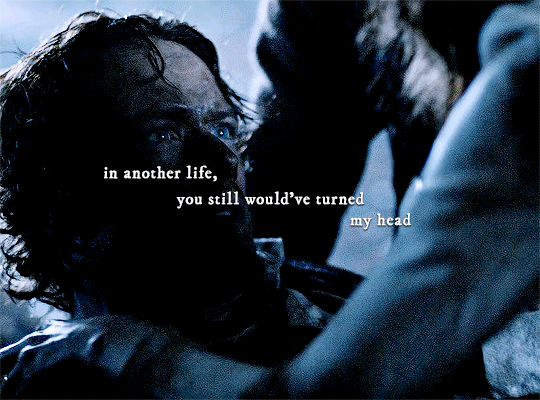


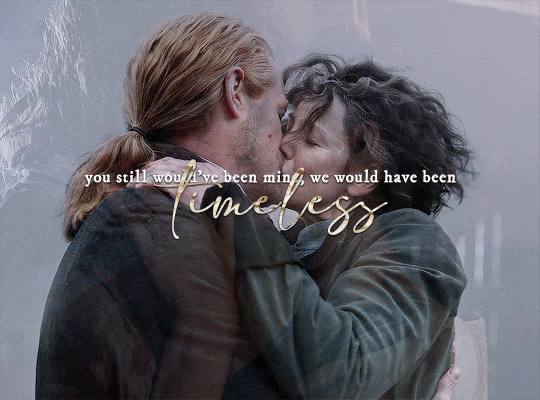
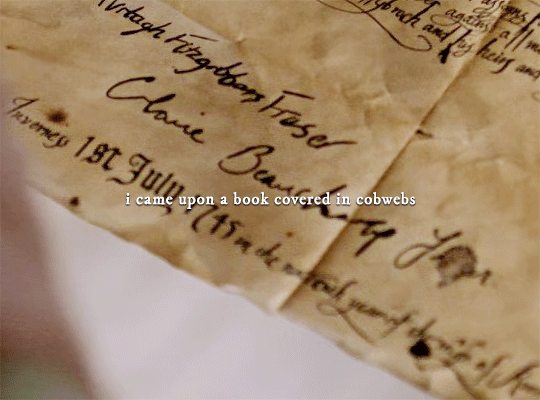
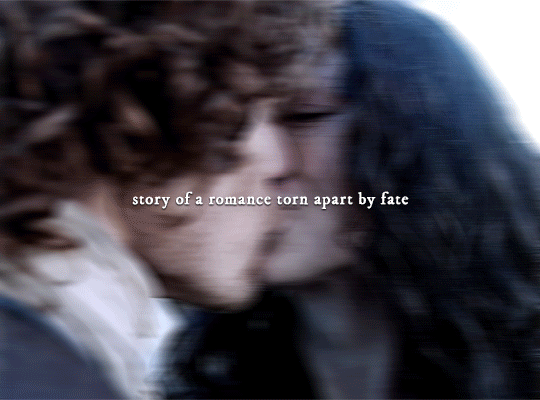
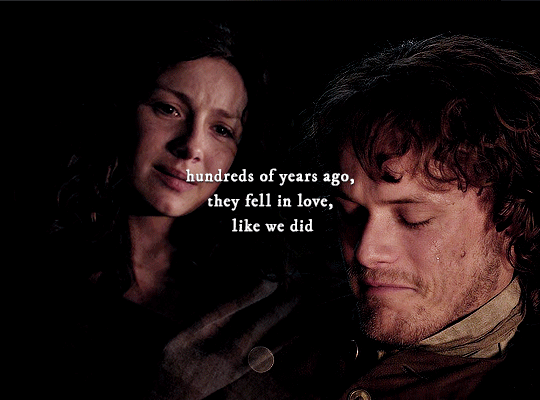
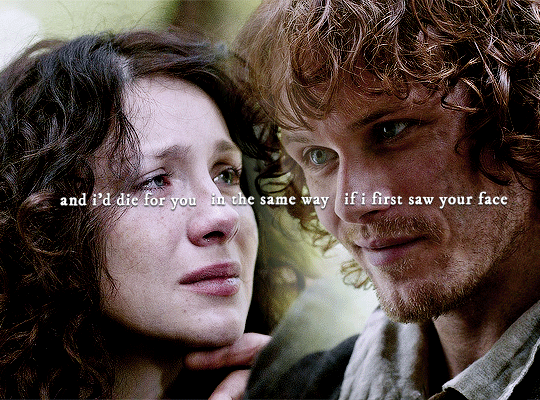
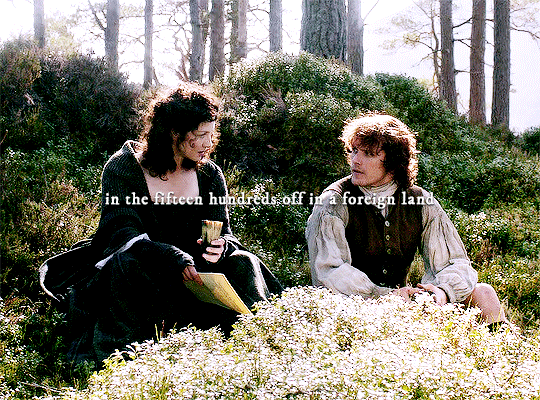
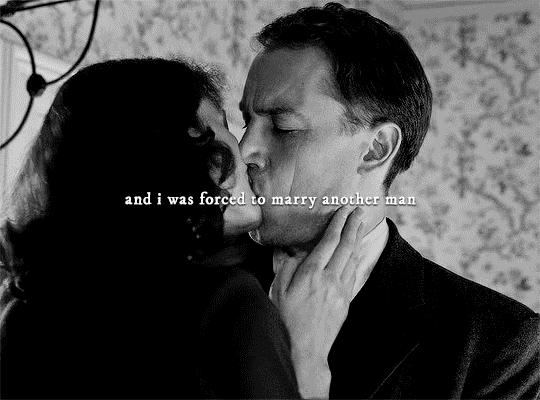

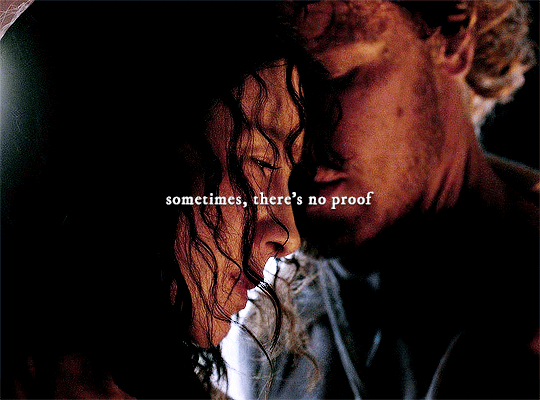
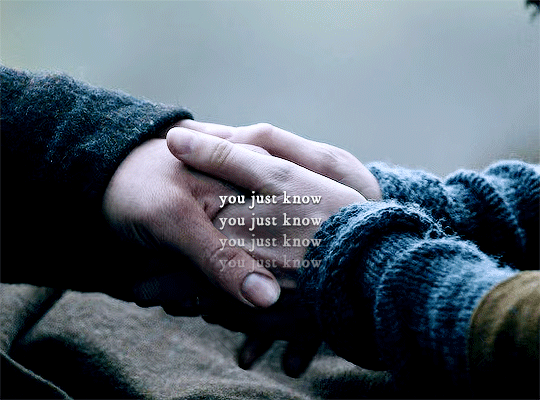
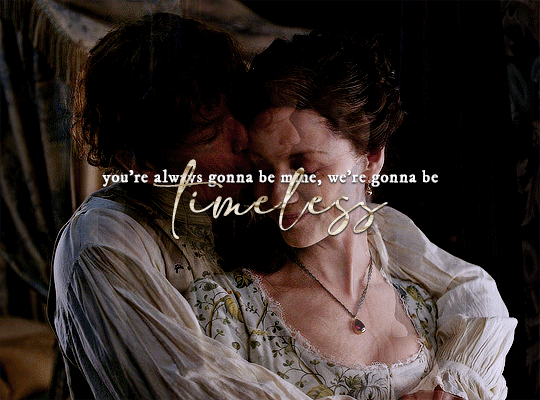
The kind of love that you only find once in a lifetime.
#*mine#outlanderedit#outlander#jamie x claire#claire beauchamp#claire fraser#jamie fraser#perioddramaedit#perioddramasource#weloveperioddrama#romancegifs#otpsource#tuseror#userkayjay#userteresa#fraserstanclub#usersteen#cinematv#tvedit#cinemapix#or i hope you like it <3#she wrote this for them it's THEIR SONG#this took forever
2K notes
·
View notes
Text
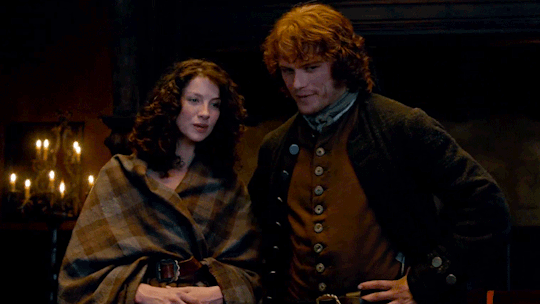


Sam Heughan and Caitriona Balfe as Jamie Fraser and Claire Beauchamp in Outlander (S1 E12 LALLYBROCH)
#outlander#how i love them so#outlanderedit#jamie x claire#claire beauchamp#claire fraser#jamie fraser#jamieclaire#sam heughan#caitriona balfe#perioddramaedit#perioddramasource#outlandernetwork#weloveperioddrama#romancegifs#otpsource#otp: and god i loved her well#tvgifs#pdedit#*gifs#*gifset#userrias#userrias gifs
635 notes
·
View notes
Text


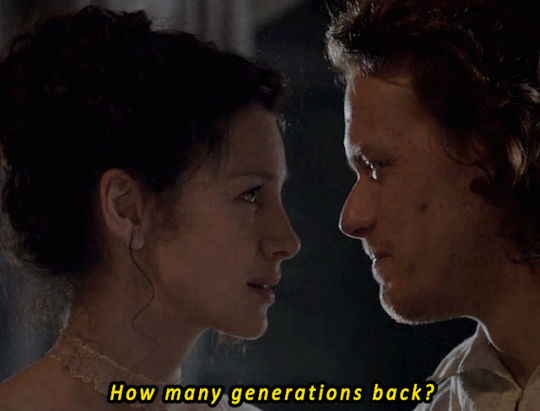
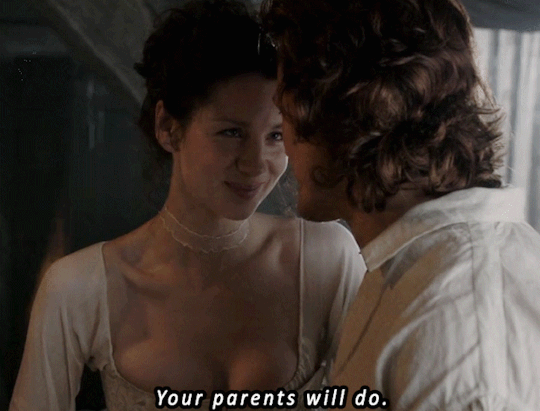

Claire Beauchamp Fraser and Jamie Fraser
Outlander 1x07
#outlander 1x07#outlandergifs#outlanderedit#outlander#claire x jamie#jamie x claire#claire fraser#jamie fraser#claire beauchamp#jamieclaire#gif sets
226 notes
·
View notes
Text
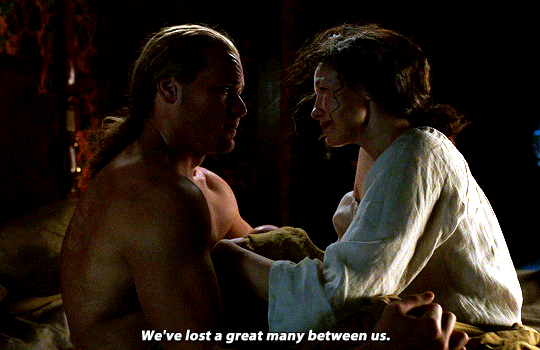
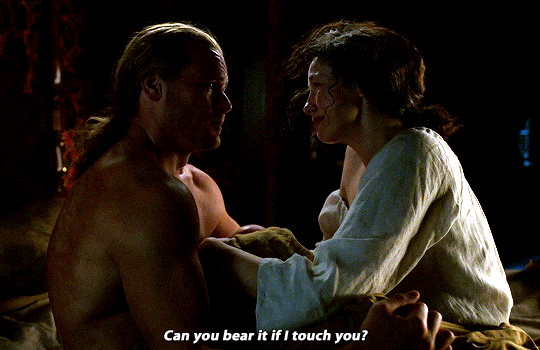


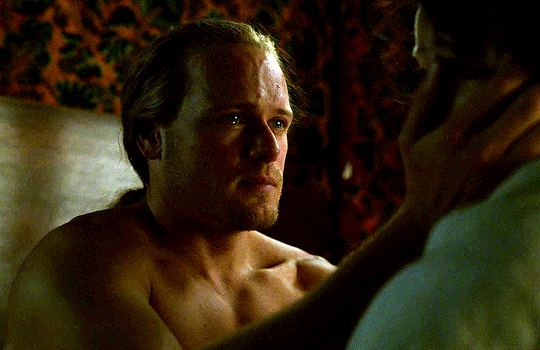
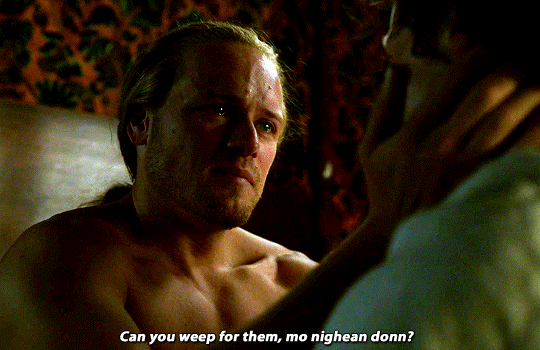

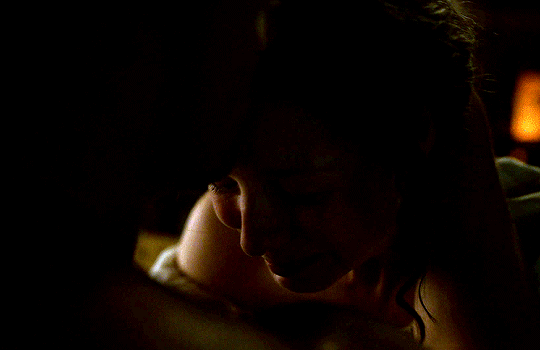

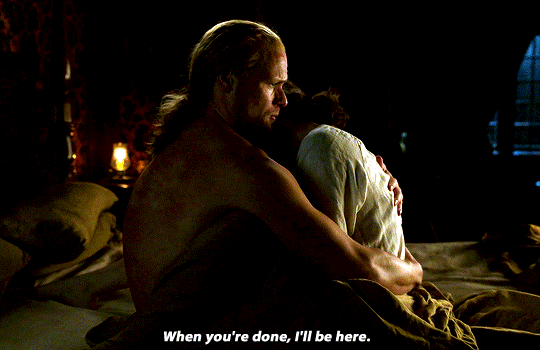
We've lost our family.
OUTLANDER | 7.02
#outlander#outlanderedit#jamie x claire#frasersedit#perioddramaedit#jamie fraser#claire beauchamp#*ol#ol7.02#tvedit#~
748 notes
·
View notes
Text
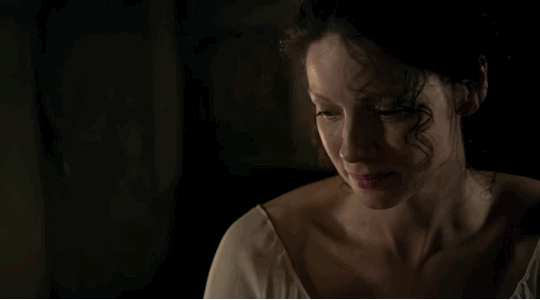


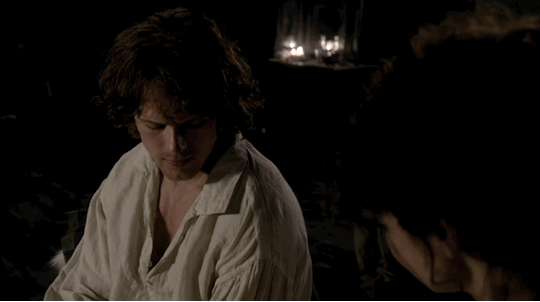

"When you kissed me like that, well, maybe you weren't so sorry to be marrying me after all."
#outlander#claire x jamie#jamie x claire#sassenach#outlander s1e7#jamie fraser#claire beauchamp#claire fraser#outlanderedit#outlander edit#outlander spoilers#outlander 1x07#outlander 1.07
272 notes
·
View notes
Text
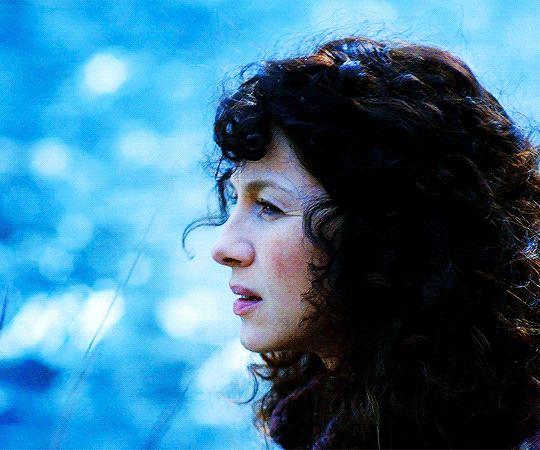
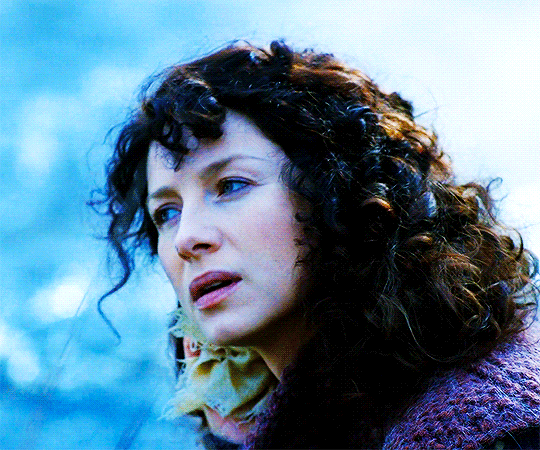

random OUTLANDER moments 1/♾️
1x05: Rent
#outlanderedit#outlander#mediagifs#femaledaily#tvedit#tvfilmgifs#dailytvfilmgifs#claire fraser#claire beauchamp#claire randall#caitriona balfe#mkedits#randomoutlander
288 notes
·
View notes
Text
SJM being obsessed with Outlander and using Jamie as her inspiration for Lucien gives me hope for Elucien.
Watching Outlander for the first time and oh my god. Yes, Jamie was SJMs inspiration for Lucien but not only are their similarities between those two characters, Claire and Elain have similarities. I can see so much of future Elucien in Claire and Jamie's relationship.
Vague spoilers for Outlander btw:
Lucien having Jamie's snarky, coy humor. Being a rake and also a gentleman. I don't need to mention the red hair because that similarity os obvious but I'll mention it anyways because we love gingers in this house.
Jamie S1 and Lucien both being unable to go back to their homes.
Jamie and Lucien being good and gentle people despite the trauma they've experienced.
Jamie being courteous and asking Claire permission to touch her, kiss her, etc. Him holding back and restraining himself during sex.
Jamie challenging Claire, being amused by Claire, etc
Jamie makes mistakes but realizes he was in the wrong and apologizes
Both Jamie and Lucien were SAed
Jamie stood up for a female he didn't have any romantic interest in. He stood up for Loghaire and took her punishment and Lucien did the same / something similar UTM for Feyre.
Jamie and Lucien are well educated warriors. Jamie can fight but he also loves chess, Lucien can fight but also loves reading.
Jamie S2 has to kill someone close to him (his uncle) and Lucien had to kill his brother when running to Spring.
Jamie and Claire S1 having a marriage with convienence and being reluctant at first but then falling in love with each other.
Claire S1 stumbling into a new time and being fixated on going back to the 1940s to her husband, even after her and Jamie have their arranged marriage. Which is so much like Elain being Made and having Lucien as a mate but still wanting to be human and be with Grayson.
Jamie being so fucking good at sex.
JAMIE GIVING CLAIRE PEARLS AND LUCIEN GIVING ELAIN PEARLS
Claire being knowledgeable of plants and their healing properties as well as their poisonous capabilities.
Claire killing a person and being traumatized by that violence. And Jamie realizing her truama and comforting her.
Claire making references to her time and Jamie doesn't understand but is amused anyways could be like Elain talking about human culture and Lucien not fully understanding.
Jamie S2 willing to let Claire go despite his love for her.
I can probably add more but this is my first watch and I'm only on season 3 lmao. But when we get Elucien's book I will be ripping it apart to find any references or nods to Outlander because I just know there are going to be so many!
125 notes
·
View notes
Text
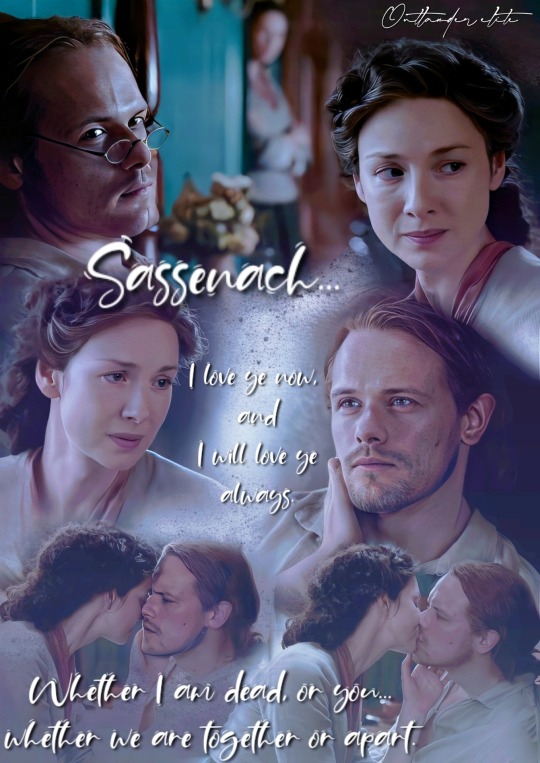
“You thought you were dying when we brought you up here, didn’t you?” I asked. My voice sounded more bewildered than accusing. It took him a moment to answer, though he didn’t look hesitant. It was more as though he was looking for the proper words. “Well, I didna ken for sure, no,” he said slowly. “Though I did feel verra ill.” His eyes closed, slowly, as though he were too tired to keep them open. “I still do,” he added, in a detached sort of voice.
“Ye needna worry, though—I’ve made my choice.”
“What on earth do you mean by that?” I groped beneath the covers, and found his wrist. He was warm; hot again, in fact, and with a pulse that was too fast, too shallow. Still, it was so different from the deathly chill I had felt in him the night before that my first reaction was relief. He took a couple of deep breaths, then turned his head and opened his eyes to look at me. “I mean I could have died last night.” He could, certainly—and yet that wasn’t what he meant. He made it sound like a conscious— “What do you mean you’ve made your choice? You’ve decided not to die, after all?” I tried to speak lightly, but it wasn’t working very well. I remembered all too well that odd sense of timeless stillness that had surrounded us. “It was verra strange,” he said. “And yet it wasna strange at all.” He sounded faintly surprised.
“I think,” I said carefully, keeping a thumb on his pulse, “you’d better tell me just what happened.” He actually smiled at that, though the smile was more in his eyes than his lips. Those were dry, and painfully cracked in the corners. I touched his lips with a finger, wanting to go and fetch some soothing ointment for him, some water, some tea—but I put aside the impulse, steeling myself to stay and hear. “I dinna really know, Sassenach—or rather, I do, but I canna think quite how to say it.” He still looked tired, but his eyes stayed open. They lingered on my face, a vivid blue in the morning light, with an expression almost of curiosity, as though he hadn’t seen me before.
“You are so beautiful,” he said, softly. “So verra beautiful, mo chridhe.”
My hands were covered with fading blue blotches and overlooked smears of buffalo blood, I could feel my hair clinging in unwashed tangles to my neck, and I could smell everything from the stale-urine odor of dye to the reek of fear-sweat on my body. And yet whatever he saw lit his face as though he were looking at the full moon on a summer night, pure and lovely. His eyes stayed fixed on my face as he talked, absorbed, moving slightly as they seemed to trace my features. “I felt verra badly indeed when Arch and Roger Mac brought me up,” he said. “Terribly sick, and my leg and my head both throbbing with each heartbeat, so much that I began to dread the next. And so I would listen to the spaces between. Ye wouldna think it,” he said, sounded vaguely surprised, “but there is a great deal of time between the beats of a heart.” He had, he said, begun to hope, in those spaces, that the next beat would not come. And slowly, he realized that his heart was indeed slowing—and that the pain was growing remote, something separate from himself. His skin had grown colder, the fever fading from both body and mind, leaving the latter oddly clear. “And this is where I canna really say, Sassenach.” He pulled his wrist from my grip in the intensity of his story, and curled his fingers over mine. “But I . . . saw.” “Saw what?” And yet I already knew that he couldn’t tell me. Like any doctor, I had seen sick people make up their minds to die—and I knew that look they sometimes had; eyes wide-fixed on something in the distance. He hesitated, struggling to find words. I thought of something, and jumped in to try to help. “There was an elderly woman,” I said. “She died in the hospital where I was on staff—all her grown children with her, it was very peaceful.” I looked down, my own eyes fixed on his fingers, still red and slightly swollen, interlaced with my own stained and bloody digits. “She died—she was dead, I could see her pulse had stopped, she wasn’t breathing. All her children were by her bedside, weeping. And then, quite suddenly, her eyes opened. She wasn’t looking at any of them, but she was seeing something. And she said, quite clearly, ‘Oooh!’ Just like that—thrilled, like a little girl who’s just seen something wonderful. And then she closed her eyes again.” I looked up at him, blinking back tears. “Was it—like that?” He nodded, speechless, and his hand tightened on mine. “Something like,” he said, very softly. He had felt oddly suspended, in a place he could by no means describe, feeling completely at peace—and seeing very clearly. “It was as if there was a—it wasna a door, exactly, but a passageway of some kind—before me. And I could go through it, if I wanted. And I did want to,” he said, giving me a sideways glance and a shy smile. He had known what lay behind him, too, and realized that for that moment, he could choose. Go forward—or turn back. “And that’s when you asked me to touch you?” “I knew ye were the only thing that could bring me back,” he said simply. “I didna have the strength, myself.” There was a huge lump in my throat; I couldn’t speak, but squeezed his hand very tight. “Why?” I asked at last. “Why did you . . . choose to stay?” My throat was still tight, and my voice was hoarse. He heard it, and his hand tightened on mine; a ghost of his usual firm grip, and yet with the memory of strength within it. “Because ye need me,” he said, very softly. “Not because you love me?” He looked up then, with a shadow of a smile.
“Sassenach . . . I love ye now, and I will love ye always. Whether I am dead—or you—whether we are together or apart. You know it is true,” he said quietly, and touched my face. “I know it of you, and ye know it of me as well.”
He bent his head then, the bright hair swinging down across his cheek. “I didna mean only you, Sassenach. I have work still to do. I thought—for a bit—that perhaps it wasna so; that ye all might manage, with Roger Mac and auld Arch, Joseph and the Beardsleys. But there is war coming, and—for my sins—” he grimaced slightly, “I am a chief.” He shook his head slightly, in resignation. “God has made me what I am. He has given me the duty—and I must do it, whatever the cost.”
“The cost,” I echoed uneasily, hearing something harsher than resignation in his voice. He looked at me, then glanced, almost off-handed, toward the foot of the bed. “My leg’s no much worse,” he said, matter-of-factly, “but it’s no better. I think ye’ll have to take it off.”
The fiery cross
#outlander#outlanderedit#the frasers#outlander starz#jamie fraser#outlander series#outlander fanart#samheughan#jamie&claire#jamie and claire#dr claire randall#claire beauchamp#claire fraser#caitrionabalfe#outlander season 5#outlander books#outlander book#outlander 5x09
92 notes
·
View notes
Text

Caitriona Balfe and Sam Heughan, 09 June 2023. Photo by Stephen Lovekin.
255 notes
·
View notes
Text
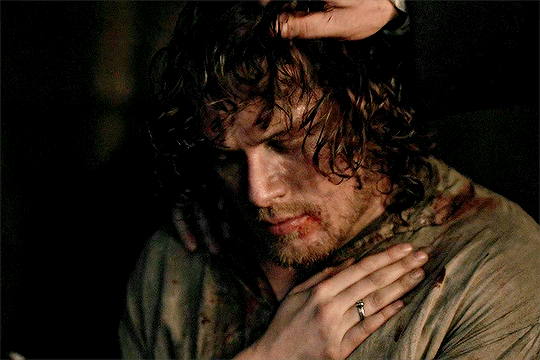
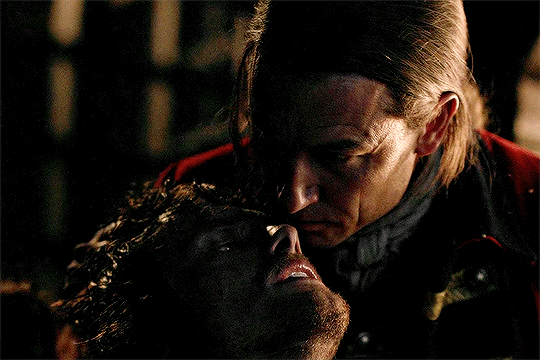
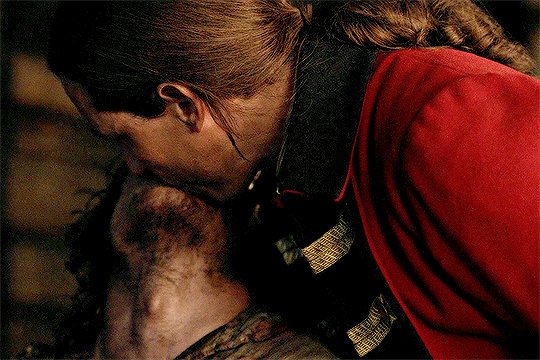



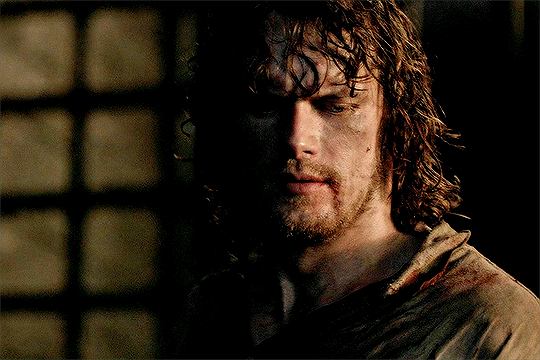
We will remember this moment for the rest of our lives.
167 notes
·
View notes
Text
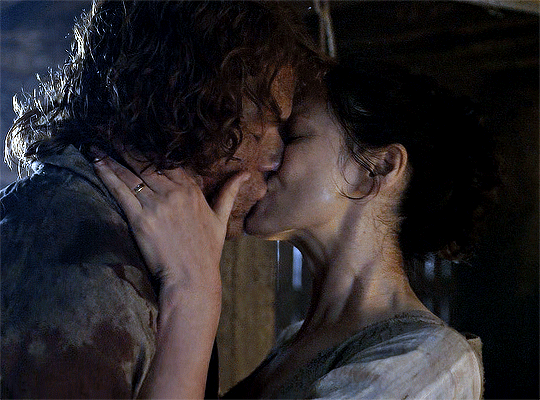

An after war reunion kiss
2.10 | 7.08
#*mine#outlanderedit#outlander#jamie x claire#jamie fraser#claire fraser#claire beauchamp#perioddramaedit#perioddramasource#weloveperioddrama#cinemapix#cinematv#tvedit#outlander spoilers#parallels
602 notes
·
View notes
Text


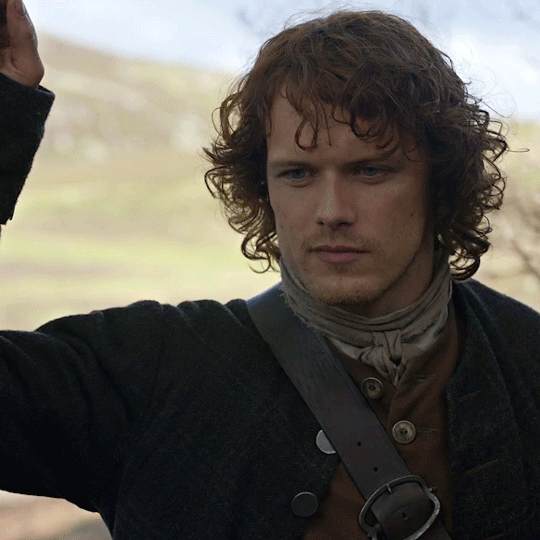
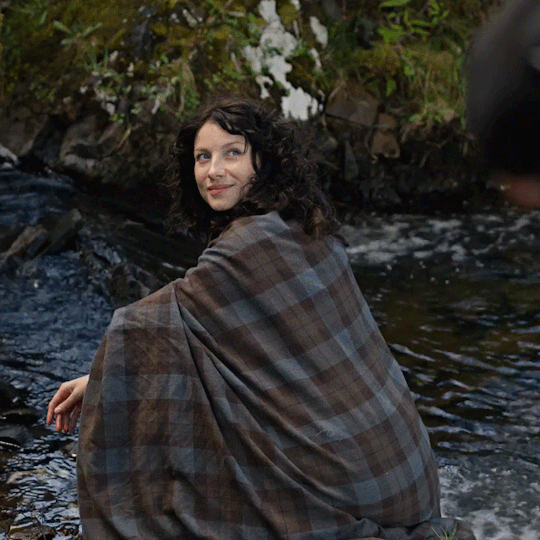
Sam Heughan and Caitriona Balfe as Jamie Fraser and Claire Beauchamp in Outlander (S1 E11 THE DEVIL'S MARK)
#2/2 of my valentines day posts#outlander#outlanderedit#jamie x claire#claire beauchamp#claire fraser#jamie fraser#jamieclaire#sam heughan#caitriona balfe#perioddramaedit#perioddramasource#outlandernetwork#weloveperioddrama#romancegifs#otpsource#otp: and god i loved her well#tvgifs#pdedit#*gifs#*gifset#userrias#userrias gifs#cinemapix#cinematv#tvfilmsource#tvedits
323 notes
·
View notes
Text


CLAIRE & JAMIE ▸ Outlander, 2.6
#outlander#tv#jamie fraser#sam heughan#james alexander malcolm mackenzie fraser#james fraser#alexander malcolm#gif by ria#claire fraser#sam and caitriona#caitríona balfe#caitriona balfe#jamie x claire#claire x jamie#claire randall#claire beauchamp#outlanderedit#jamiefraseredit#clairefraseredit
377 notes
·
View notes
Photo

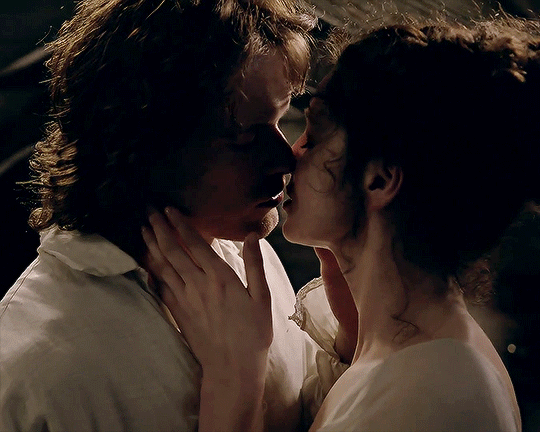

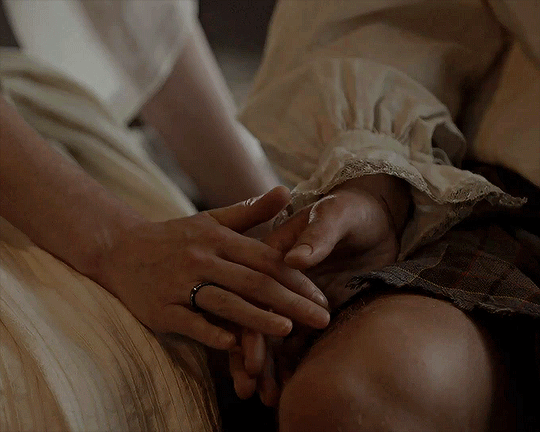
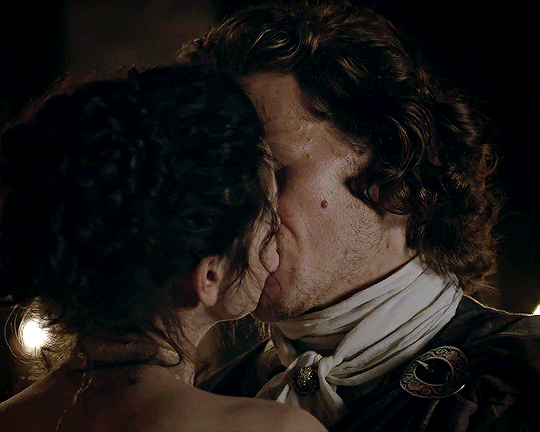
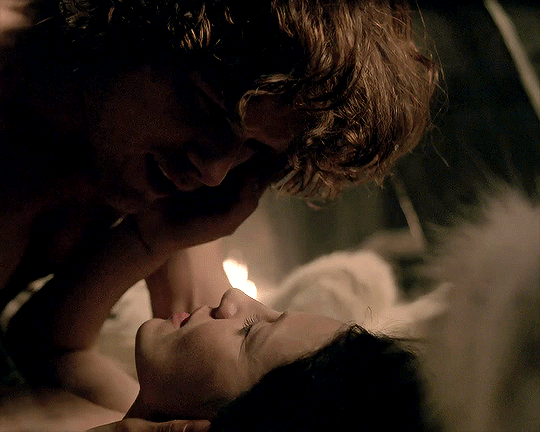

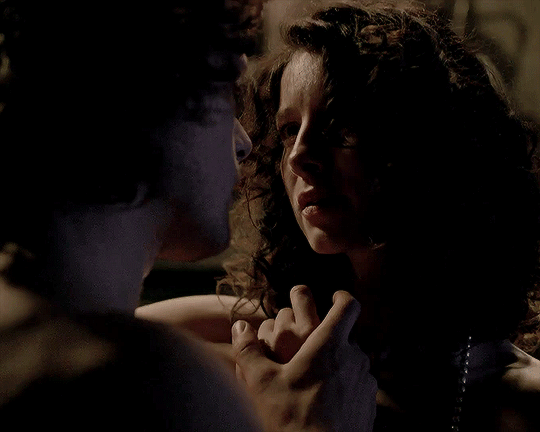
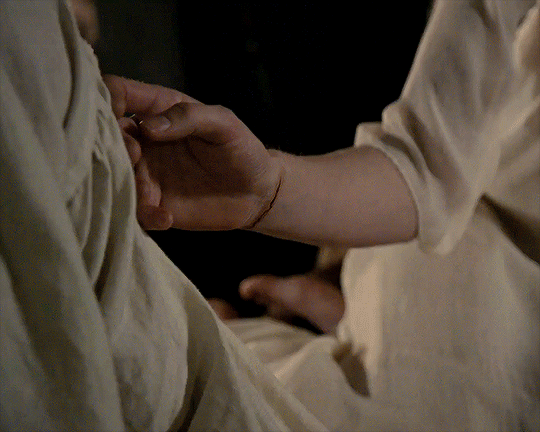
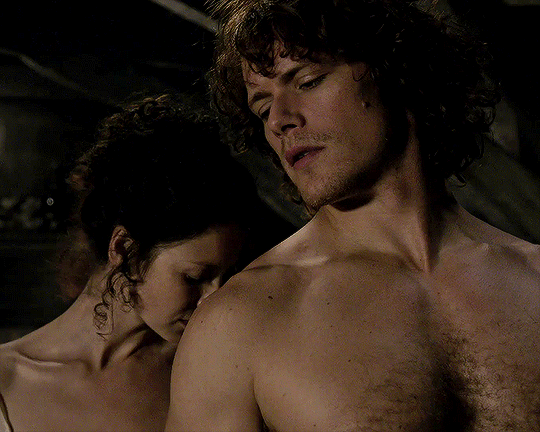
when you kissed me like that, well, maybe you weren't so sorry to be marrying me after all
#outlanderedit#periodedit#perioddramasource#weloveperioddrama#userperioddrama#periodedits#gifshistorical#onlyperioddramas#usersteen#useremsi#usereponine#userlolo#userjamiec#ongifs#onmembers#onteresa#the frasers#claire beauchamp#jamie fraser#s1#1x07
567 notes
·
View notes